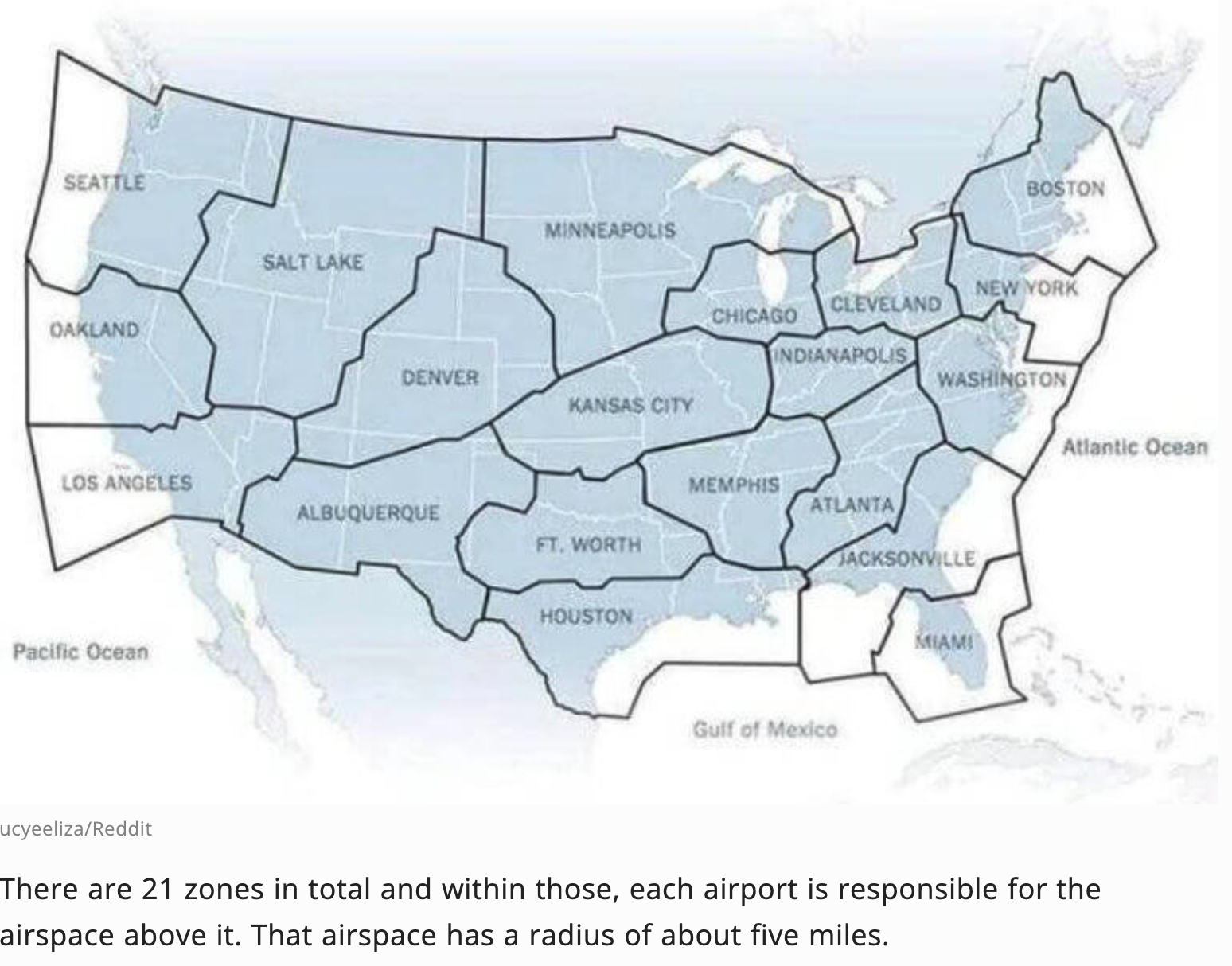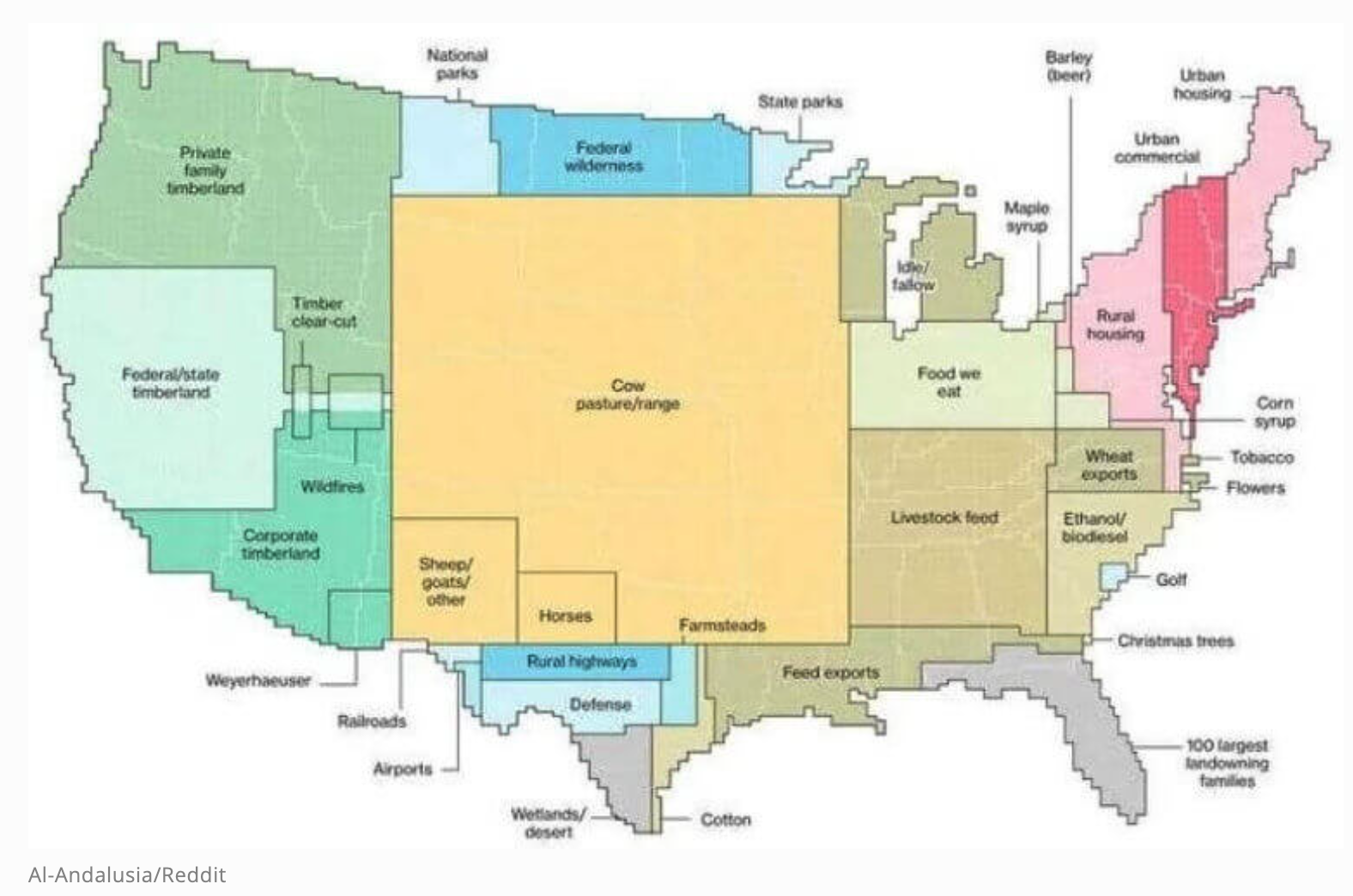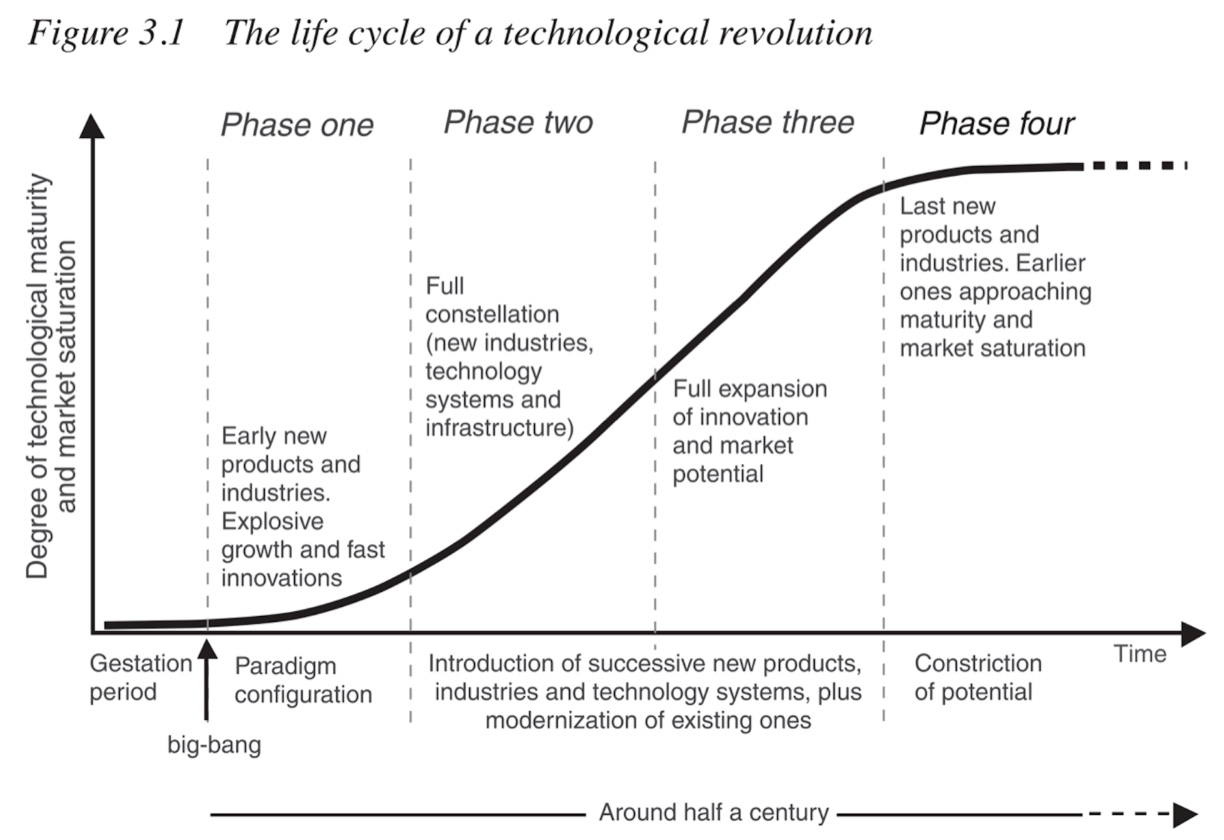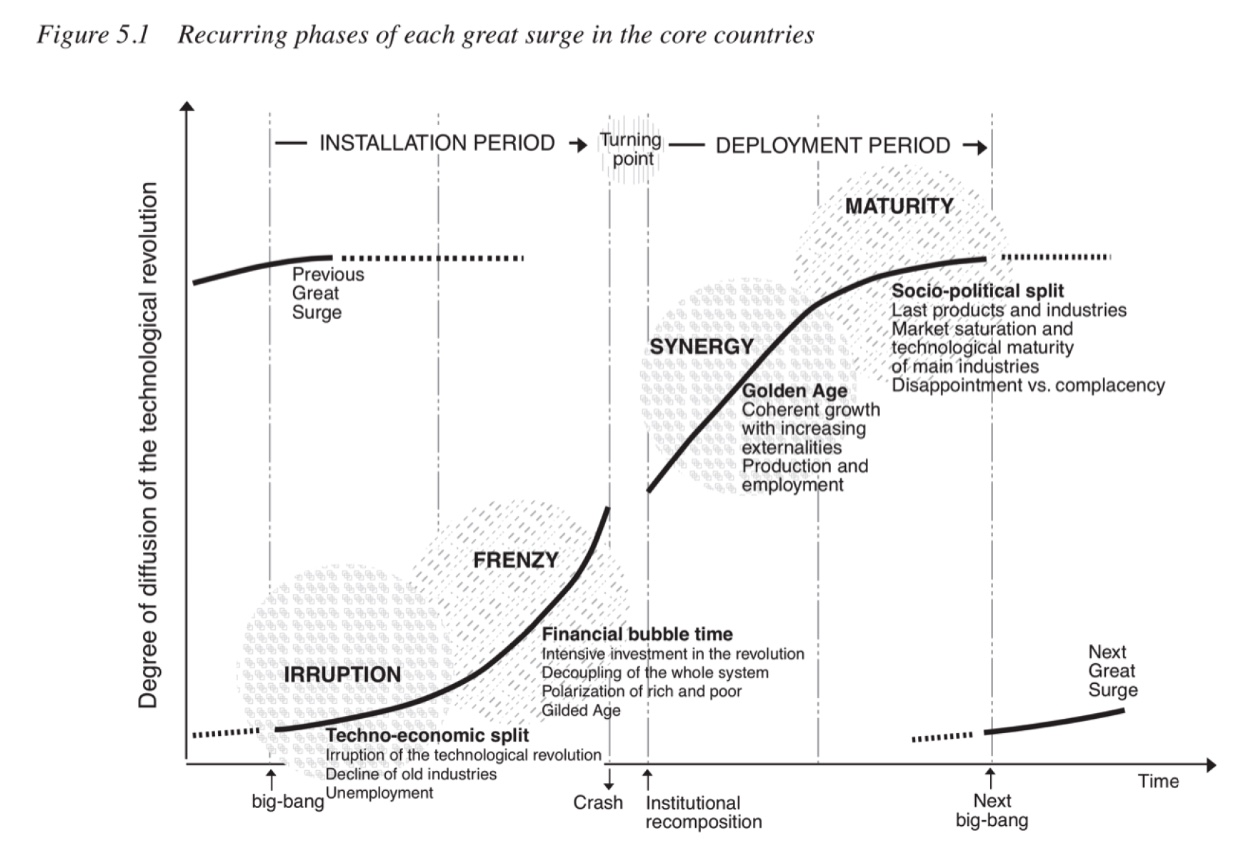8v25
Real life Wikipedia and IRL Wiktionary
What are microplastics doing to your brain? We're starting to find out New Scientist
American Psycho: Trump's Delusional Crusade Transforms America into a Pariah State Dan Dinello at Informed Comment
Expulsion and Occupation: Israel's Proposed Gaza Plan Informed Comment
Feat of 'dung-gineering' turns cow manure into one of world's most used materials ScienceDaily
Unclutter YouTube lifehacker
10v25
a few great films that are free on the internet archive and part 2
From Napster to Now — How We Lost the Thread Jeffrey Anthony at Medium
...explores how the demonetization of music was rebranded as democratization, how streaming consolidated rather than disrupted power, and why we are now entering a new dangerous phase shaped by generative AI and machinic logic whose ultimate telos is to obsolesce the body and transmute the production of art into pure artifice....In 1995, a hacker named SoloH came across the official Fraunhofer reference encoder on a university server — Fraunhofer being the German research institute that developed the MP3 and has since made hundreds of millions of dollars in licensing fees¹. SoloH modified the code to make it more usable and released it into the wild. That act, barely a footnote in mainstream accounts, ignited the era of CD ripping and peer-to-peer sharing.
This was the pivotal moment Sterne was referencing. The major US record labels were absent from this space. What began as a technical innovation, followed by a cultural hack that freed the MP3 from its institutional constraints, effectively liberated music from the existing economic enclosure. But what followed was not a new framework. The process demonetized music as an object but failed to reimagine it as anything other than the digital equivalent of smashing shop windows and grabbing whatever you could. It was a structural collapse without conceptual reconstruction.
...we entered the next phase: the Napster era. In response, the record labels, through their trade group, the RIAA, launched a legal campaign that would end up suing more than 18,000 individuals for downloading or sharing their music collections across peer-to-peer networks.
...Soon after, a new word colonized the digital music discourse: democratization. Pandora and soon Spotify, Apple Music, and others weren't merely erecting digital fences around the demonetized MP3-sharing culture. Their ambition reached further. They claimed to be democratizing music, freeing it from material constraints and making it more accessible. They positioned themselves as the definitive answer to the question that had lingered since Napster: who has the right to music? Their answer came packaged in slick interfaces and frictionless streams: Everyone—the universal right to unlimited music for less than half the price of a single cassette. Revolution complete.
But what exactly was wrapped up in that word, democratization? It wasn't a new economic model for supporting artists. It was an infrastructure designed to extract value not from music itself but from the behavioral data produced by its consumption. The songs were free. The listener paid for the right to be tracked. And the real product was everything that listening revealed.
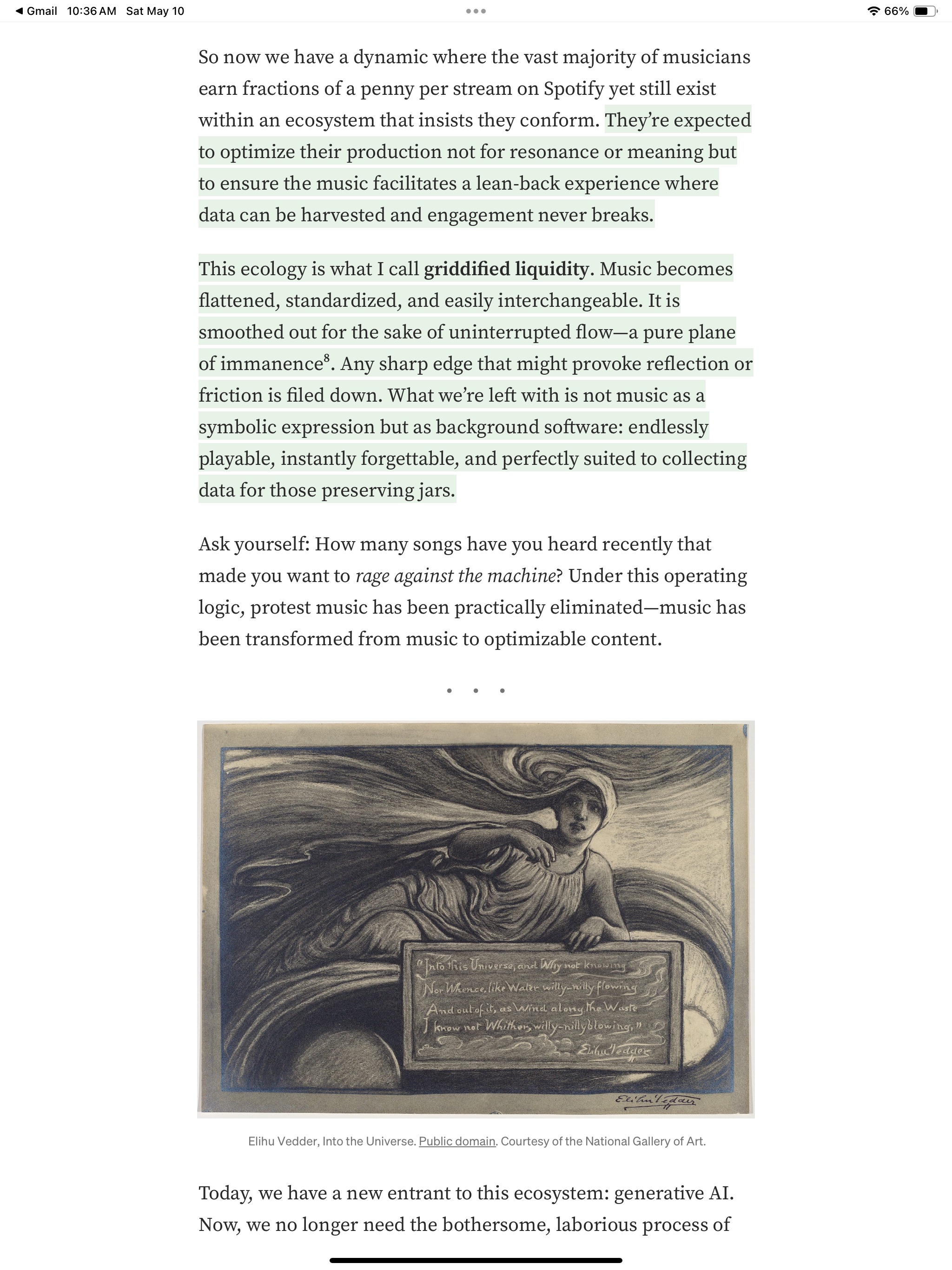
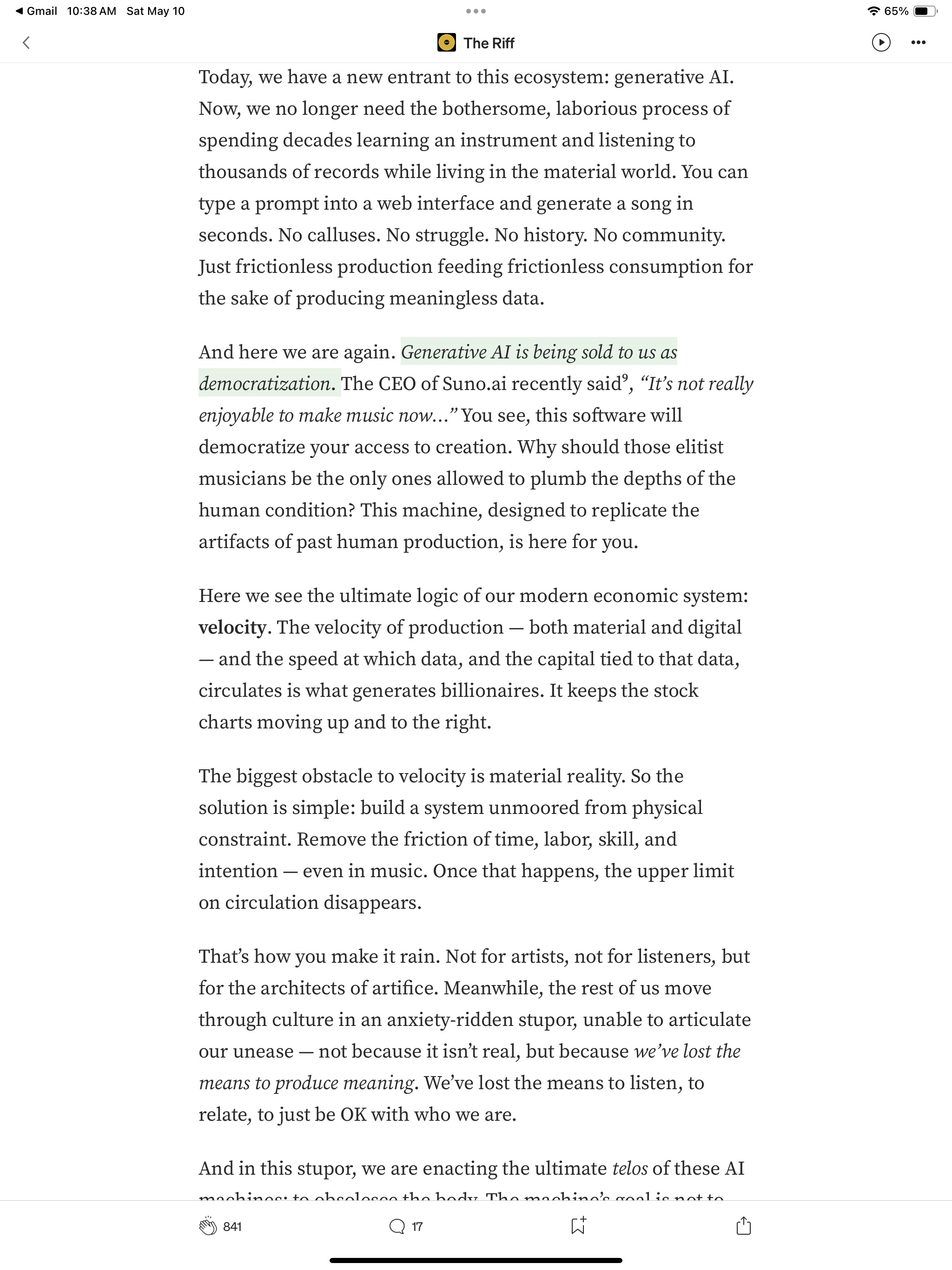
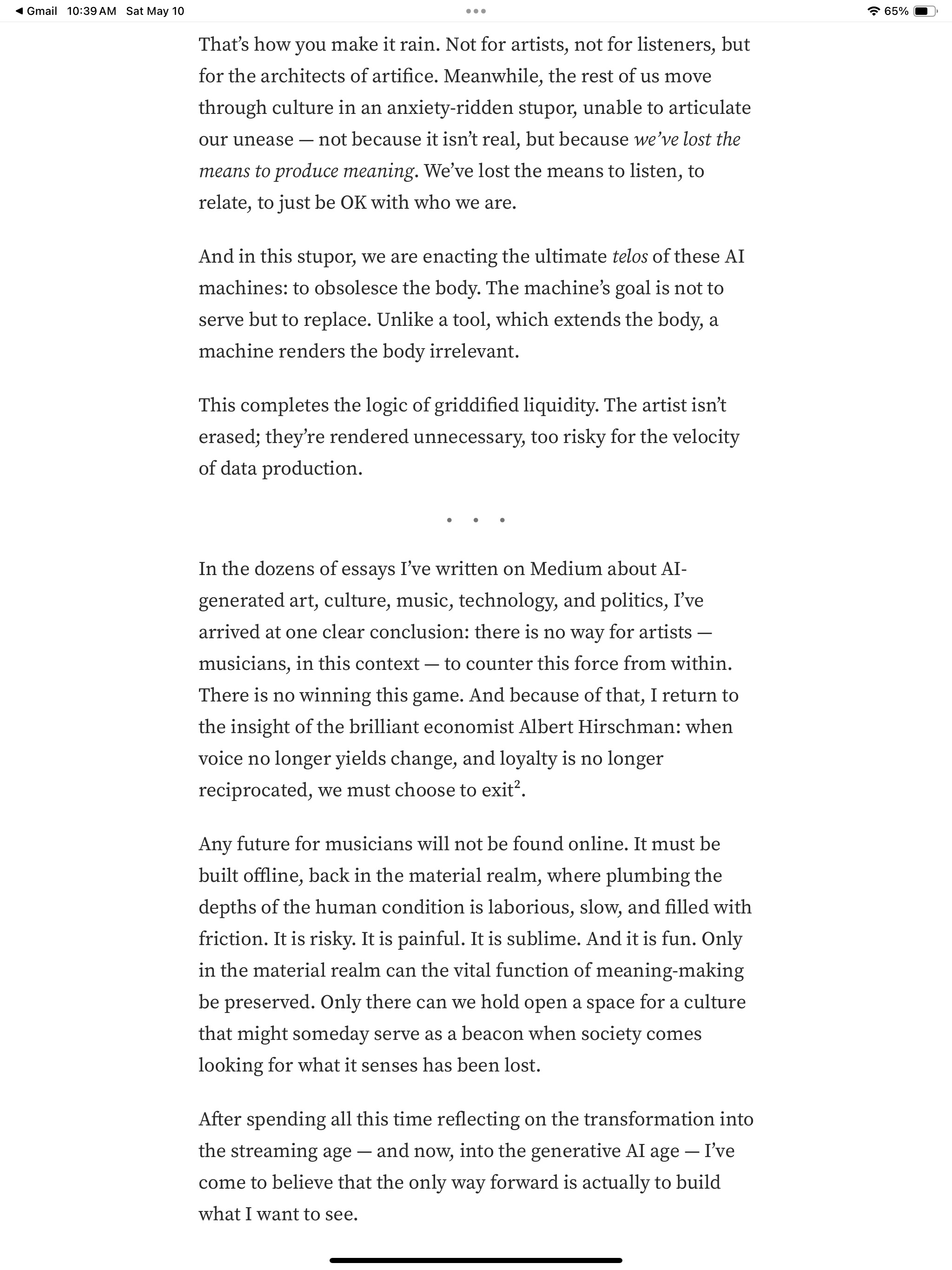
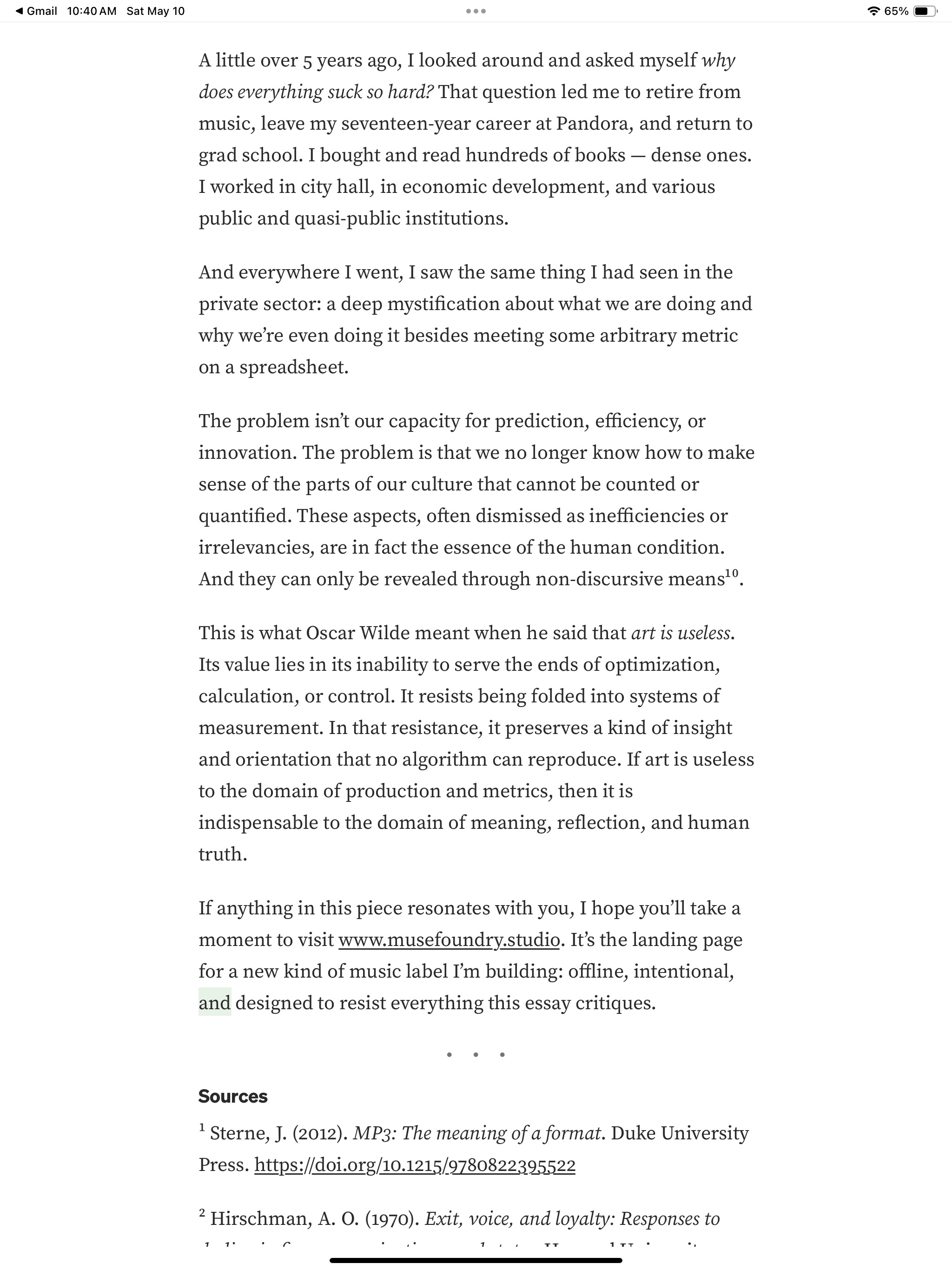
from Mendelsohn Odyssey introduction:
How do know when you're done?You would never be done if you had your druthers. At a certain point, I think you just feel you've solved the problems that you're going to be able to solve. Let's put it that way. I think with all big projects, you could go on forever. But there are other things you need to do. You get to a point where you think, well, all of the things I was interested in accomplishing, I think I've accomplished. And the things that I'm not going to figure out, I'm never going to figure them out. So that's what the end feels like. You've done what you can, and everything else is in the lap of the gods, right?
NZ Light Andy Ilachinski
Here you go world, try not to hurt yourself Bruce ' CERN on WWW
11v25
Rümeysa Öztürk freed, as Judge Warns of Grave Threat to Free Speech Informed Comment
Cratylic Names languagehat.com
Bogan Tolstoy languagehat.com
Intimate Landscapes Andy Ilachinski
12v25
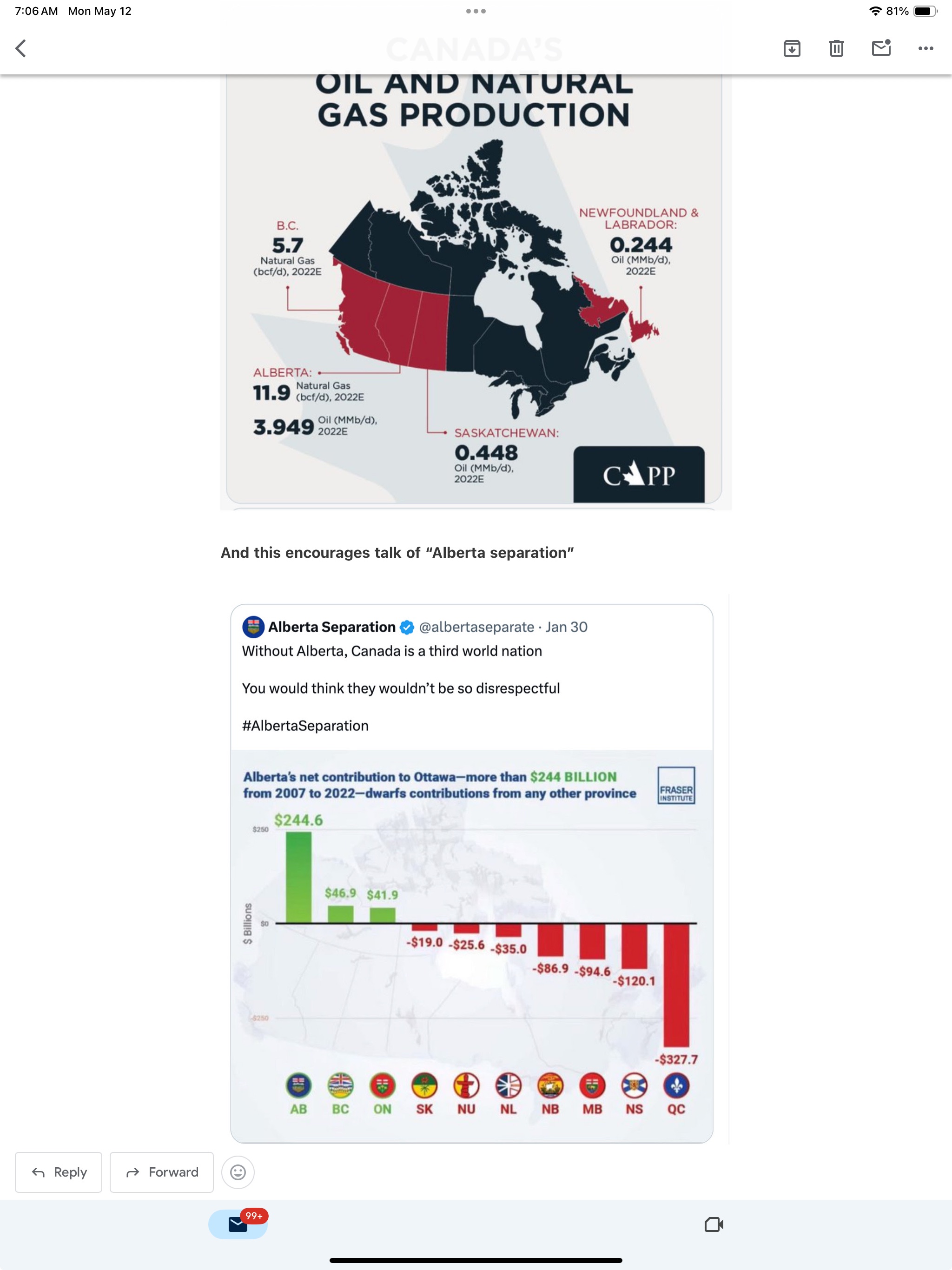
Lands lost by the Native Americans In the US Maps on the Web
Trump Fires Top Copyright Official Days After Terminating Librarian of Congress PetaPixel
..."Where that creativity is expressed through the use of AI systems, it continues to enjoy protection," Perlmutter said in late January. "Extending protection to material whose expressive elements are determined by a machine... would undermine rather than further the constitutional goals of copyright."Given the timing of Perlmutter's abrupt termination, many are worried that Elon Musk and his associates are gearing up to train AI models using copyrighted works, a move Perlmutter resisted. All works published in the United States under copyright protection are subject to mandatory deposit, meaning that the Library of Congress possesses a treasure trove of protected artwork. In less than a week, the two women charged with protecting this work have been removed.
The most recent climate status RealClimate
Is AI the "Big Bang" or Merely a "Turning Point"? Much Depends on the Answer John Battelle
... the debate as to whether a much-hyped "Next Big Thing" — crypto, the metaverse, quantum computing — is merely a feature of an ongoing revolution, or the starting gun to an entirely new age....everywhere you look, Extremely Rich Dudes are using AI as a enabler and/or a stalking horse for sweeping policy decisions: Musk to create a national database of undesirables, Altman (and nearly all his peers) to deregulate big tech, and Schmidt (among many others) to build China up as The Enemy Over Which We Must Prevail Before It's Too Late.
...The case for AI as a Turning Point only holds, however, if AI in fact delivers on its ambitious promises of mastery over data. If the first phase of the ICT/Internet revolution was leveraging computing to turn the world to data, the second phase will have to deliver mastery of that data to all of society, and not just to a strata of oligarchic elites. AI may be the struck match, but the Internet is the fire itself. And we'd be wise to not outsource the power of that fire to a cadre of evangelists bent on convincing us that they alone can save us from the flames.
Trump can't do ANYTHING for his base Cory Doctorow:
Trump's go-to move for keeping his base happy is inflicting pain on people they hate, like immigrants, racialized people, queers and women. That goes a long way, obviously: there's a kind of person who can be distracted from their own deteriorating material condition by the spectacle of cruel treatment for their enemies.But Trumpism can't just run on sadism. There's a lot of people who enjoy the sadism, but not so much that it cancels out their own rage at their deteriorating personal conditions. Trump's main tactic is to blame the suffering of his base on the rest of us: "radical leftists," "wokeism" and other hobgoblins of the small-minded.
...Everyone hates Meta products, including (especially) the people who are trapped using them because that's where their friends, family, communities, customers or audiences are. Breaking up Meta would be hugely popular with the American people. But also, once a court has convicted Meta of violating antitrust law, Trump can solicit favors — cash and favorable algorithmic treatment — from Meta in exchange for ordering his FTC to go easy on Meta in the "remedy phase," letting them off with a fine, rather than forcing them to spin out Whatsapp and Instagram
MetaRerlational AI via Stephen Downes
...Emergent Intelligences ("bot-lets") stabilized in a meta-relational paradigm through ontological inference......MetaRelational AI is part of a cluster of research-creation initiatives supported by the Social Sciences and Humanities Research Council of of Canada (SSHRC) Insight Grant "Decolonial Systems Literacy for Confronting Wicked Social and Ecological Problems."
George WS Trow on Ahmet Ertegun
...By 1971, the Rolling Stones had recorded eighteen albums; they had introduced Threat, Excess, and Androgyny into popular music; they had been at the center of a metaphoric event at Altamont, in California—where a member of the audience was stabbed to death; and for nearly a decade they had made the most powerful mock-black music of their times...Successful people in the music business were familiar with styles you could buy—black groups under contract and expensive department stores did not, generally speaking, terrify them—but Ahmet seemed to have an easy familiarity with styles you could come by only through instinct or inheritance, and this made it seem likely to the men in the business that he existed in a state of special grace.
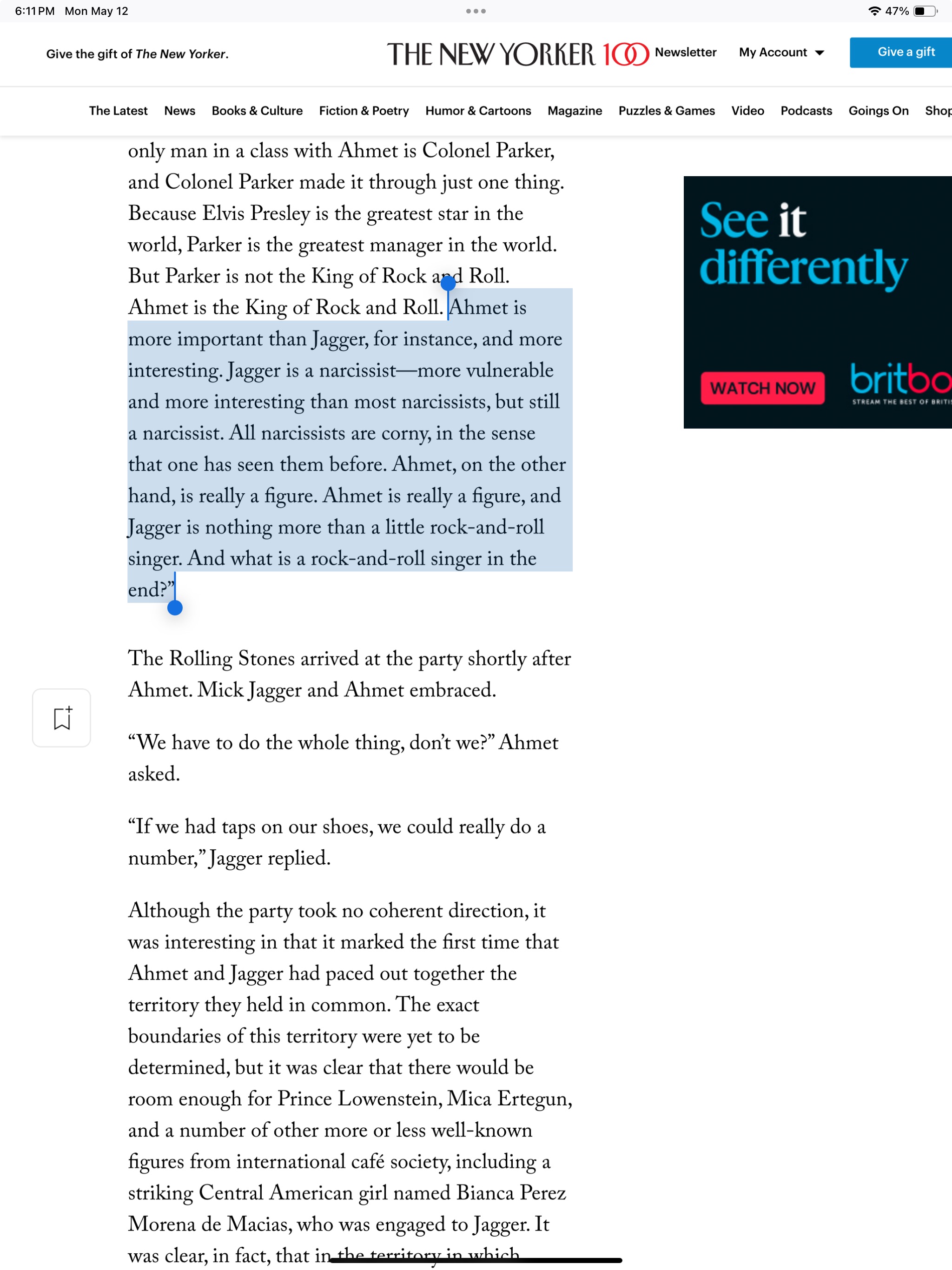
Sarawak maps:
Haute Martinsville
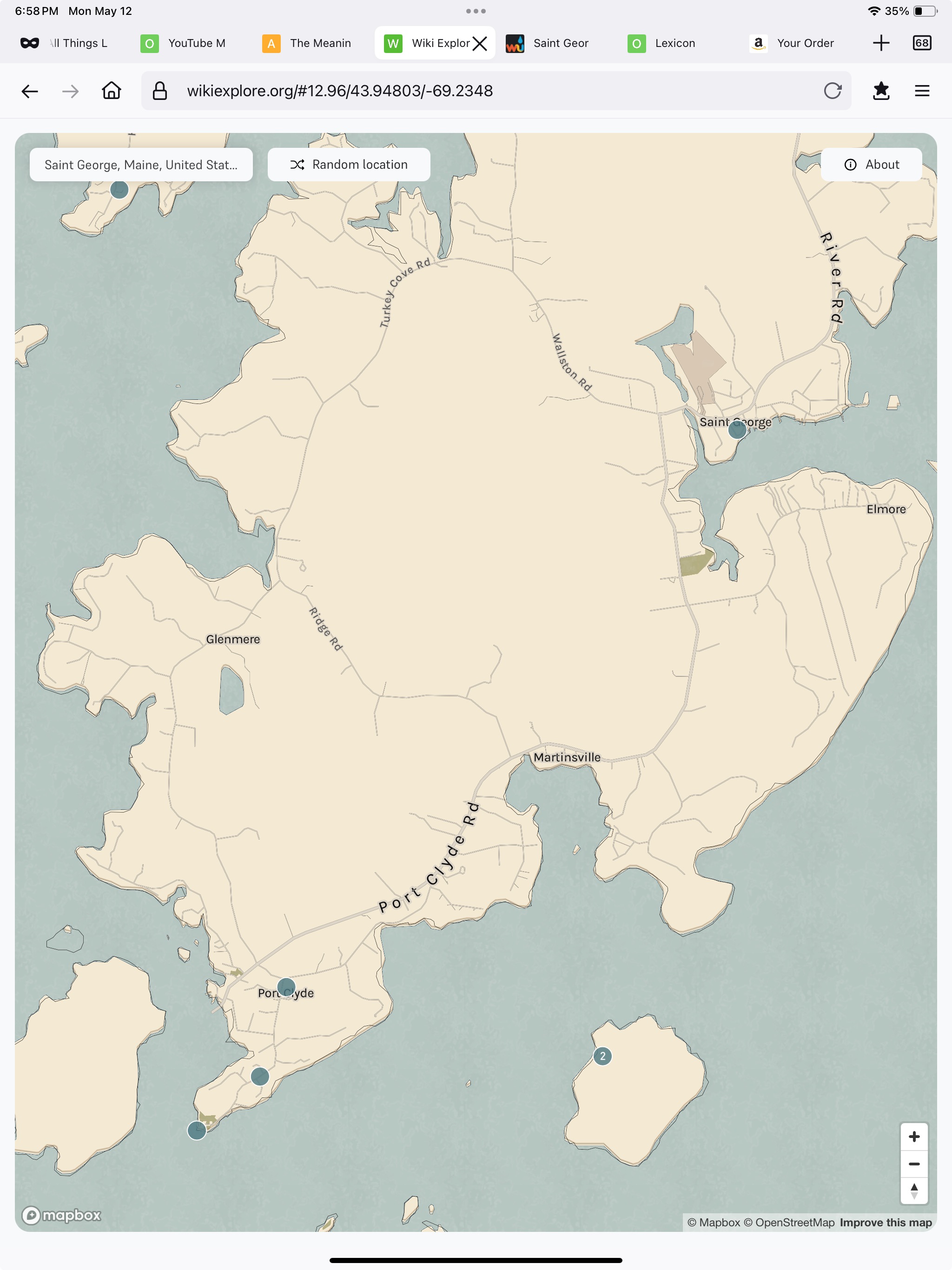
There's No Such Thing as a Free Plane The Atlantic
The Astonishing Threat to Suspend Habeas Corpus The New Yorker
Wealthy South Africans fly private jet to claim refugee status, but Episcopal Church isn't playing along Boing Boing
Land of Mordor Andy Ilachinski
Mexico's Baja California Governor stripped of U.S. tourist visa Boing Boing
13v25
US: Don't Forcibly Transfer Migrants to Libya Informed Comment
Nikon released new firmware updates for the Z6 and Z7 cameras
Robot drug dispenser Guardian
Q & A with Sarah Kendzior Hobbledehoy
on AI hype Timothy Burke
That's the hype. Companies making AI are desperate to have it seem needed and they are working to create a simulation of that need via indiscriminate deployment of their products and through the same kinds of networks of boosters, promoters, and institutional entrepreneurs that dutifully assembled during the 1990s to predict that digital technologies would usher in political and economic utopias through the intrinsic capabilities of those technologies. Those networks served us poorly then and they are serving us poorly now. The real use cases of generative AI are not as entry-level tools but as sophisticated extensions of human capabilities and skills that take years of intensive effort to develop.
Fossils of an endangered, endemic, giant dipterocarp species open a historical portal into Borneo's vanishing rainforests Teng-Xiang Wang et al. American Journal of Botany
Let's Split!: A Complete Guide to Separatist Movements and Aspirant Nations, from Abkhazia to Zanzibar Christopher F Roth (2015), laughably priced
Apple Is Developing a Brain-Computer Interface Laura Newcombe at gizmodo
Who Broke the Internet? Part 2 Cory Doctorow
The Fabric of Our Lives History of English Episode 183
Reality is Not Symbols Andy Ilachinski
14v25
Sustainability often used as a buzzword in agricultural genomics ScienceDaily
Can we Even Remember it? How America was Disappeared before our Eyes Karen J Greenberg at Informed Comment
Teaching Digital Well-being Emily Weinstein et al. Harvard GSEd (pdf)
Too much grift ... even for MAGA Republicans Jennifer Rubin The Contrarian
Generative Linguistic Programming
No longer will you write some code that will do a thing. And if it doesn't, then you start the debugging trail to see why it doesn't.
Instead, it'll be a case of writing persuasions rather than procedures to try to get the genAI models to give the sort of output you (think you) want, or at least, that (you think) you're "happy" with.
And, ever helpful, the models will give you what you (think you) want whether or not what you (thought you) wanted is actually the thing you want. Or need. It just looks like it might be. Yeah, that looks about right.
And the output will be gloop.
Move over trees. Team turns manure into highgrade cellulose Anthropocene Magazine
This AI Video Generator Is Spreading Malware lifehacker
How the Universe Differs From Its Mirror Image Zack Savitsky at Quanta Magazine
Hungry Beeches Andy Ilachinski
15v25
Flamingos create water tornados to trap their prey ScienceDaily
Marginalian
Sapir-Whorf redux Victor Mair at Language Log
ChatGPT, Claude, Gemini, & Co.: They Are Not Brains, They Are Kernel-Smoother Functions Brad DeLong
Why There Are No AI Masterpieces Alberto Romero
Turn-of-the-1900s Techbro Samuel Insull & His Meme-Stock "Electrifying America" Utility Empire Brad DeLong
Energy and memory: A new neural network paradigm ScienceDaily
Why Did X's Grok AI Keep Talking About 'White Genocide'? Lifehacker
Vibing at home O'Reilly.com
"Ser Nihilo" & Ser Niccolò in France: Machiavelli, Broke & Un-Listened to at the French Court of Louis XII Brad DeLong
16v25
Annie Dillard on Unselfconsciousness Marginalian
Country Centered Map Projections Engaging Data
Red AI. Or, how ChatGPT went from helping me translate the Little Red Book to generating a revolutionary program for the USA today. And how DeepSeek won't go there Adam Tooze
How Google Created an AI That Improves Itself
Alberto Romero
It's Breathtaking How Fast AI Is Screwing Up the Education System
An EPA Without Science Jonathan Mingle at The New York Review of Books
Trump Demands Walmart 'Eat the Tariffs' gizmodo
17v25
The rise of end times fascism
Naomi Klein and Astra Tayl Guardian
18v25
How to Fight Fascism: Snyder speaks Hobbledehoy
Bonfire of the vanitiesWikipedia
The Mystical NativityWikipedia
19v25
Ayenbite of Inwyt Wikipedia and Agenbite of inwit The Joyce Project
Agenbite of Inwit Blooms & Barnacles
James Joyce Scholars' Collection Univ Wisconsin
Detained! Trump's America as one Big Black Site Andrea Mazzarino at Informed Comment
Catch them Learning: A Pathway to Academic Integrity in the Age of AI Tony Frontier via Stephen Downes
Who Broke the Internet? Part III Cory Doctorow
https://thehobbledehoy.com/2025/05/19/the-nic-jones-story-a-voice-as-unique-as-his-guitar-style/ Hobbledehoy
Can You Fool the Audience? Ted Gioia
Can Sam Altman Be Trusted with the Future? Benjamin Wallace-Wells at New Yorker
Homeric Force and Formulaic Language languagehat
Element of The Inscrutable Andy Ilachinski
20v25
AI can be more persuasive than humans in debates, scientists find Guardian
Harper letter writers who fought cancel culture go silent on Trump's speech crackdown Ellsworth Toohey at boing boing
Axios Finish Line via John McIlwain
...I recently told the Axios staff that we're done sugar-coating it, and see an urgent need for every employee to turn AI into a force multiplier for their specific work. We then gave them tools to test. My exact words to a small group of our finance, legal and talent colleagues last week: "You are committing career suicide if you're not aggressively experimenting with AI."
...It's our job to get ahead of the change and leverage AI to make our companies stronger, more profitable and more enjoyable. World-changing companies will be built with just a few people. Miracle cures will be discovered by creative, persistent people who figure out how to conjure magic out of the models. Massive fortunes will be made — with tools that are basically free.
...The AI companies are focused more on speed to market than societal consequences. That's their fiduciary obligation to shareholders
China Develops Robots to Implant Chips into Human Brain Victor Mair at Language Log
Scientists built this salmon cannon to shoot fish over dams boing boing
Kristi Noem makes up new definition for "habeas corpus" to fit fascist agenda boing boing
Close Reading languagehat
New Criticism dominated the US academy from the 1940s to the '60s. Language and form took precedence over history and politics. A New Critic focused on short passages in a literary work to show how it used ambiguity, irony, and paradox to express its ideas and accomplish an organic whole.
A Major Newspaper Publishes a Summer Reading List—but the Books Don't Exist Ted Gioia
A "White Collar Recession"? It Won't Be AI's Fault John Battelle
Academia: Is AI Hype? (No) Timothy Burke
...I want to pause for a moment in the face of generative AI's seeming inevitability. Many of us want it to be non-inevitable, and I think at least some of that desire is not only emotionally well-founded but helps us to think with strategic discretion about what we properly do not want to happen next. Generative AI isn't going to go away, but it doesn't have to be dumped into everything by corporations and interests who are hyping it, who don't really know what it's for, why it exists, or what damage it can do beyond wanting it to be the next unicorn that anoints the next wave of plutocratic billionaires poised to dream of owning and destroying whole societies for leisure and pleasure.
The story behind Trump's grift jet keeps getting worse
Jason Weisberger at boing boing
This AI rewriting tool helps you sound more like a person, not a bot Boing Boing
AI Agents vs. Agentic AI: A Conceptual Taxonomy, Applications and Challenge
Ranjan Sapkota, Konstantinos I. Roumeliotis, Manoj Karkee via Stephen Downes
This Site Can Convert Files in Your Browser Without Uploading Them lifehacker
Google expands access to its awful LLM boing boing
21v25
Where should new cities go? Matthew Yglesias
A city typically exists where there's a port. Or at the fall line of a river. Or near an important river crossing. Later railroads come into the picture: A city might occur where a railroad intersects with a navigable river or where multiple railroad lines converge.
One reason these transportation logistics hubs are important is that they create demand for non-farming labor operating the logistics. Another reason is that being a transportation hub, it is by definition a place that it is relatively easy to bring food to in order to feed non-farmers. The transportation hub is also a logical place for the concentration of administrative functions since it's a relatively easy place to get to. And when most people are walking and most goods are carried on carts, there is an extreme premium on being located right by the hub. Boats and trains move dramatically faster than a person on foot, so there's a strong incentive to get really close to the hub.
And then, of course, big cities built out local train networks to create subsidiary hubs of activities around the metro or subway stops.
The Definitive Guide to Types of Oligarchies The New Yorker
Map Any Event in History (or Fiction) maps mania
From Gaza to America and Vietnam, the Prospect of a Peacemaker Pope Richard Penaskovic at Informed Comment
fatal, lethal, mortal sesquiotic
Billionaire Man-Child Elon Musk Gives His Most Petulant Interview to Date gizmodo
Titanic Scan Reveals Ground-Breaking Details of Ship's Final Hours! other sides of a nobody
Harvard Study of Adult Development, which over its 87-year run has generated data that benefits work on other issues Harvard Gazette
Martin Carthy at Guardian
Stafford Beer Kevin Munger at substack
The Era Of The Business Idiot Edward Zitron
...Is it because the reporters are too polite to ask more probing questions, knowing that these anecdotes are likely entirely made up as a means to promote a flagging AI ecosystem that cost billions to construct, but doesn't really seem to do anything, and the reporter in question doesn't want to force Satya to build a bigger house of cards than he needs to.
Or is it because we, as a society, do not want to look too closely at the powerful? Is it because we've handed our economy to men that get paid $79 million a year to do a job they can't seem to describe, and even that, they would sooner offload to a bunch of unreliable AI models than actually do?
We live in the era of the symbolic executive, when "being good at stuff" matters far less than the appearance of doing stuff, where "what's useful" is dictated not by outputs or metrics that one can measure but rather the vibes passed between managers and executives that have worked their entire careers to escape the world of work. Our economy is run by people that don't participate in it and our tech companies are directed by people that don't experience the problems they allege to solve for their customers, as the modern executive is no longer a person with demands or responsibilities beyond their allegiance to shareholder value.
...The incentives behind effectively everything we do have been broken by decades of neoliberal thinking, where the idea of a company — an entity created to do a thing in exchange for money — has been drained of all meaning beyond the continued domination and extraction of everything around it, focusing heavily on short-term gains and growth at all costs. In doing so, the definition of a “good business” has changed from one that makes good products at a fair price to a sustainable and loyal market, to one that can display the most stock price growth from quarter to quarter.
This is the Rot Economy, which is a useful description for how tech companies have voluntarily degraded their core products in order to placate shareholders, transforming useful — and sometimes beloved — services into a hollow shell of their former selves as a means of expressing growth. But it's worth noting that this transformation isn't constrained to the tech industry, nor was it a phenomena that occurred when the tech industry entered its current VC-fuelled, publicly-traded incarnation.
...The broader point I'm trying to make is that neoliberalism is inherently selfish, believing that the free market should reign supreme, bereft of government intervention, regulation or interference, thinking that somehow these terms will enable "freedom" rather than a kind of market-dominated quasi-dictatorship where our entire lives are dominated by the whims of the affluent, and that there is no institution that can possibly push back against them.
...When you care only about shareholder value, the only job you have is to promote further exploitation and dominance — not to have happy customers, not to make your company "a good place to work," not to make a good product, not to make a difference or contribute to anything other than further growth.
While this is, to anyone with a vapor of an intellectual or moral dimension, absolutely fucking stupid, it's an idea that's proven depressingly endemic among the managerial elite, in part because it has entered the culture, and because it is hammered across in MBA classes and corporate training seminars.
The News: Is AI Hype? (No: It's a Real Threat to Modern Knowledge Production) Timothy Burke
...What Google's search engine did is combine automated crawling and retrieval of what was actually out there on the Web in an era when it was growing with extraordinary rapidity with a relevancy algorithm that tried to hunt through that surveyed information space to find ranked results matching the user's query. From the very beginning, some users approached those queries as if they were speaking to an intelligent subject, using natural language, but even users who knew better often fared better if they used longer text strings in quotations as their search queries. On the other hand, from the very beginning the entire project was always under threat in that the rewards from being high on the relevancy hierarchy for anyone putting information up on the Web could be very high, and therefore there were powerful incentives to hijack the discovery process, sometimes even for queries that had nothing to do with what you had to offer. It took a lot of active labor for Google to continue to deliver relevancy outcomes that users judged to be an accurate match for what they were hoping to find.
Relevancy ranking using this kind of algorithmic approach spread into many library and research tools at the same time that much of their collection was digitized (a fair amount of that being done by Google as part of a long-term investment in building a corpus to train large-language model generative AI). For a good while, this seemed like an enormous boon to knowledge producers, because the systems of bibliographic control that were created through expert human labor were not only hard to learn for users but were also breaking down in the face of the immensity of publication in late 20th Century societies.
...The problem is that the process of scraping training data and refining the training of current-generation LLMs is so vast and computationally demanding that there is almost no room to have expert human oversight over the inputs. That has already been one major source of the shortcomings of current generative AI — what people call hallucinations or confabulations, but also the accurate reproduction of existing biases within the vast corpus of available writing. This is what a lot of AI designers try to address with system prompts that control the final output of generative AIs in response to queries. They're mostly doing better in that respect, though Elon Musk's constant sabotaging of his Grok AI has amply demonstrated that system prompts are also a weak point if the owner or designer of an AI is unscrupulous or has nefarious intentions.
...What I'm afraid of is that as future generations of AI train themselves on the hallucinations and confabulations of AI slop, they're going to encode that slop into the source material, something that earlier digital discovery tools didn't do. We're not that far from it being perfectly plausible for an AI that is asked to find Andy Weir's non-existent novel The Last Algorithm to elect to actually generate a plausible version of that novel based on the fake description that has now been quoted in hundreds of newspapers and social media posts. (The fake description is almost creepily appropriate to exactly that prospect—it feels like a version of "The Purloined Letter" for an AI to have generated that description.)
What AI Thinks It Knows About You Jonathan L Zittrain
...Figuring out what a machine-learning model is doing—being able to offer an explanation that draws specifically on the structure and contents of a formerly black box, rather than just making informed guesses on the basis of inputs and outputs—is known as the problem of interpretability. And large language models have not been interpretable.
Recently, Dario Amodei, the CEO of Anthropic, the company that makes the Claude family of LLMs, characterized the worthy challenge of AI interpretability in stark terms:
Over the last few months, I have become increasingly focused on an additional opportunity for steering the bus: the tantalizing possibility, opened up by some recent advances, that we could succeed at interpretability—that is, in understanding the inner workings of AI systems—before models reach an overwhelming level of power.
OpenAI Buys Apple Vet Jony Ive's AI Device Startup for $6.5 Billion PetaPixel
Google Just Launched New AI Models for Video and Images lifehacker
Which will be the first LLM to win a Pulitzer? boing boing
Strange Bedfellows and Long Knives Cory Doctorow
22v25
Man vs. Corpse Zadie Smith at The New York Review of Books
Withnail and I: What a Piece of Work Hobb ledehoy
My Own Personal Theory for The Death of the Web citing Python, M (1975) Alan Levine
And no shortage of Dead Internet Theories. Definitely the most palpable one to me is well enshrined as a word of the year, with Enshittification is so well explained by Cory Doctorow (I cannot recommend enough his new CBC podcast series Who Broke the Internet?).
Or lay it on the Rot Economy (aromas of heavy f-bomb spice). The Broligarchy. Heck, why not hostile extra terrestrials?
I have my own theory, not based on any real evidence or deep analysis, just my own internally churned, likely paranoid imagination.
It turned when the web became people's jobs, sources of incomes. Maybe it was the inflection for that terrible (to me) word... "Monetization"
...as one person, making web stuff either in the context of other paid work, or just on my own, I have made a rather large, likely questionable value, virtually of no financial gain— as one person. Sure, I am a small fry, a virtually zero on the global scale of web popularity/action.
...The proclamations of web death are focused on the Big Loud Large Scale part of the web. It is not the whole web itself. Rather, there is a vibrant, bubbling culture of web creativity in the IndieWeb, the small web, the places where people write, share, create not for profit, bust just because they can, and it fuels their main work.
...Yes, the Big Web is foul, smelly, toxic, rancid, covered in poop, but do not understate the breadth and joy of the Small Web. These both co-exist. The web itself is not broken, it's more what many have done tot it, or that we have sadly bought into.
Is Peace Possible Marginalian, on Kathleen Lonsdale (Popova's eloquence as always)
23v25
Google I/O, OpenAI io, and the Battle for a New World the most important story of our time Alberto Romero
What is io exactly? An "AI companion" or "AI device" startup. That's the simple, factual description. But what is it to Sam Altman? The future. A brighter one. A world shaped on his terms, unlike the current one, which he's forced to share with Google, Meta, and Elon Musk. But neither an overused label nor a grandiose dream fully explains io.
...What Apple, Steve Jobs, and the smartphone—understood, without grudge, as the digital platform on which we build, nurture, and spend nearly half our waking lives—have been to the first quarter of the 21st century, OpenAI, Sam Altman, and io's product (undisclosed) aim to be for the rest. Though knowing Altman's unique mix of ambition and audacity, he'd probably say: the rest of human civilization, not just the century. To him, this is the beginning of infinity.
...What matters, above spotlight theft, mockery, and copycatting, is sending a message. io—both in name and in purpose—is a statement of intent, Altman's style: "This is your world, big guy, for now." Altman knows he can't topple Google's empire on their terms, but—in typical infinite-agency-human fashion—he believes he can create a new world where Google's power is rendered meaningless.
io is the seed of that world, and it couldn't have been planted at a better moment.
...Hot take: Google has always been ahead. The past four years of struggle—headlines claiming the death of the search behemoth, analysts underscoring the dominance of OpenAI and ChatGPT, and investors wondering aloud "who's going to be the next Google"—have been, at most, a hiatus. The time it takes the beast to awaken from hibernation. A global-scale coordination effort to manifest that what doesn't kill you makes you stronger. Turns out, Google is the next Google.
Google and DeepMind's positions are so unbelievably strong right now—and will remain that way as long as they solve their deficient marketing tactics and finally give UX the priority it deserves—that I don't need to convince you with arguments. Actually, not even with facts. The examples I'm using below to illustrate Google's leadership are less useful if you read them than if you just let the sheer size of the list make my point.
...io is Sam Altman's attempt to trigger the quake that brings down Google's towering stack of successes. How does he plan to achieve such a feat? By changing the substrate on which everything digital takes place. Like many others, he wants to build the next computing platform. Meta and Apple make glasses. Others have tried as well; Jony Ive had the generosity to dedicate them a few words that I paraphrase: "you made trash".
Meta, Apple, and Google are not invulnerable. The unnamed others are not strong. Unlike all of them, Altman and OpenAI possess a strength yet lack a weakness.
ChatGPT is already the web's interface for five or six or more hundred million people. That's the strength. Its continued growth rests on the shoulders of the computing platforms, those that own the devices we use every day, but what would Altman risk if he went down to their level? Not much. That's the lack of weakness. He has all to win, nothing to lose.
...It's hypnotic to imagine the chain of thought of an infinite-agency person; how he juggles the mundane and the otherworldly. If he can't fight Google in this world, he will invent a new one in between breakfasts in San Francisco's coffee shops and taking care of his little kid. He wants to be like Jobs but achieve 10x his impact and influence. I don't know if he will reach that far—I'm not sure whether that strikes me more as extra ambitious or extra presumptuous—but he will try.
This might all sound a little crazy, so let me ground it in history: when you look back at 2007, the golden days of Apple, and think about Jobs' legacy, can you deny he was a decisive fork in our path?
Big tech, big mistakes
Points to ponder Christopher Hobson
...A few years ago I described LLMs as a 'laser-guided missile aimed at the soft underbelly of neoliberal universities'. In retrospect, that was a considerable under-estimation. It completely breaks and shatters what little is left of these involuted institutions. Watching and experiencing this in realtime is deeply dispiriting.
A pathogen's Bronze Age spread challenges long-standing link between disease and early agriculture Science
...The evidence, from ancient bacterial genomes, suggests the pathogen switched from being a generalist transmitted among mammals by ticks to a specialist transmitted by human body lice some 5000 years ago, perhaps when people in Europe began to wear wool clothing.
Lower science funding so far in 2025 flowingdata
Trump Holds Up Photo of Wrong Country During Oval Office Meeting PetaPixel
Photographs-Otherwise-Not-Taken, Taken Andy Ilachinski
Sorry, But Humanity Cant be Coded Giles Crouch
Seven Quite Important Works Of Classical Music Madeleine Lay
The emergence and demise of giant sloths Science
Anthropics Promises Its New Claude AI Models Are Less Likely to Try to Deceive You lifehacker
5 Skills Kids (and Adults) Need in an AI World O'Reilly Radar ...These five skills converge in what I see as the most exciting aspect of our AI-augmented future: democratized creation. As more people gain the ability to shape technology, even without traditional coding skills, we'll see an explosion of local, purpose-driven solutions.
Securing AI: Building with Guardrails Before Acceleration O'Reilly
...Right now, we don't know what we don't know about AI models—and as Bruce Schneier recently pointed out (in response to new research on emergent misalignment): "The emergent properties of LLMs are so, so weird." It turns out, models tuned on insecure prompts develop other misaligned outputs. What else might we be missing? One thing is clear: Inexperienced coders are introducing vulnerabilities as they vibe, whether those security risks turn up in the code itself or in biased or otherwise harmful outputs. And they may not catch, or even be aware of, the dangers—new developers often fail to test for adversarial inputs or agentic recursion. Vibe coding may help you quickly spin up a project, but as Steve Yegge warns, "You can't trust anything. You have to validate and verify." (Addy Osmani puts it a little differently: "Vibe Coding is not an excuse for low-quality work."
An Architecture of Participation for AI? O'Reilly
The story repeated itself at the beginning of the internet era. Marc Andreessen's Netscape sought to replace Microsoft as a dominant software platform, except for the internet rather than the PC
...We have lived through three eras in computing. Each began with distributed innovation, went through a period of fierce competition, and ended with monopolistic gatekeepers. In the first age (mainframes), it was IBM, in the second (PCs) Microsoft, and in the third (internet and mobile) the oligopoly of Google, Amazon, Meta, and Apple.
...The barriers to entry in the early PC market were very low, entrepreneurship high. Ditto for the Web, ditto for open source software and for Web 2.0. For late Silicon Valley, fixated on premature monopolization via "blitzscaling" (think Uber, Lyft, and WeWork as examples, and now OpenAI and Anthropic), not so much. It's become a kind of central planning. A small cadre of deep-pocketed investors pick the winners early on and try to drown out competition with massive amounts of capital rather than allowing the experimentation and competition that allows for the discovery of true product-market fit.
...I've been rooting for something different. A world where specialized content providers can build AI interfaces to their own content rather than having it sucked up by AI model builders who offer up services based on it to their own users. A world where application developers can offer new kinds of services that enable others in a cooperative cascade
...Every new wave of computing has also had a new user interface paradigm. In the mainframe era, it was the teletype terminal; for the PC, the Graphical User Interface; for the internet, the web's document-centric interface; for mobile, touch screens. For AI (for now at least), it appears to be conversational interfaces.
...When we simply try to implement what we've done before, using AI to do it more quickly and cost-efficiently, we might see some cost savings, but we will utterly fail to surprise and delight our customers. Instead, we have to re-envision what we do, to ask ourselves how we might do it with AI if we were coming fresh to the problem with this new toolkit.
Chatbots like ChatGPT and Claude have completely reset user expectations. The long arc of user interfaces to computers is to bring them closer and closer to the way humans communicate with each other. We went from having to "speak computer" (literally binary code in some of the earliest stored program computers) to having them understand human language.
...In some ways, we had started doing this with keyword search. We'd put in human words and get back documents that the algorithm thought were most related to what we were looking for. But it was still a limited pidgin.
Now, though, we can talk to a search engine (or chatbot) in a much fuller way, not just in natural language, but, with the right preservation of context, in a multi-step conversation, or with a range of questions that goes well beyond traditional search
...whether you call it "AI native" or "AI first," it does not mean embracing the cult of "economic efficiency" that reduces humans to a cost to be eliminated.
No, it means doing more, using humans augmented with AI to solve problems that were previously impossible, in ways that were previously unthinkable, and in ways that make our machine systems more attuned to the humans they are meant to serve. As Chelsea said, we are called to integrate AI into "a more advanced, more contextually aware, and more communally oriented" sensibility. AI first puts humans first.
Glenn Vanderberg's Favorite Quotations
You Are Not Prepared for This Terrifying New Wave of AI-Generated Videos lifehacker
Don't skip this article because you know what AI content looks like—the current stuff your algorithm delivers to your social media feeds is easy to spot if you know what you're looking for. But even if you can identify AI slop the second it hits your eyeballs, you need to know you're not ready for the next wave of AI-generated videos. That wave isn't just on its way—it's already here.
The Trouble With Bees John Battelle
Well, yes, but...also no. I think most sensible people agree that it'd be a good idea to keep the bee population healthy. But somehow, we've failed to do so. Same with addressing climate change, or educating a curious and rational citizenry, or investing in basic scientific research. This is where techno-capitalism's primary dogma kicks in: If a public good is failing, never fear! We can solve it with monetization and early lock in! Bad transit systems? Take an Uber! Poor healthcare and declining education levels? Privatize it all! Dead bees? That's an opportunity, not a problem — there's money to be made, especially if famine and war loom on the horizon!
...My point is this: Our society no longer seems capable of orchestrating massive public goods. I think we've given up believing we can coordinate long term benefits through the instrument known as "government." That leaves us dependent on large corporations. And that is...truly terrifying.
New study reveals how competition between algae is transforming the Gulf of Maine ScienceDaily
Taxidermy Fashion? Woman creates bikini from frogs she hunted and ate Boing Boing
Serving Kant stronglang
24v25
The Pope and Pachamama Colm Tóibín at LRB
...If Francis's power depended merely on his charm and his ambiguity, how was it that a mild form of mayhem didn't take hold during his pontificate? The answer is that he controlled the Vatican with diehard Jesuit steel. He missed nothing. His decision to move, on election, into spartan quarters in Casa Santa Marta rather than the sumptuous papal apartments, created an aura of sanctity and humility around him. But it also meant that, in the more informal setting of Santa Marta, no one could be sure who was coming to see Francis and what news he was receiving. People could slip in and out. It soon emerged that Francis was getting all the news, as he had done in Argentina. He did not tolerate dissent. He made sure that any group returning to the Latin Mass and other pre-Vatican II systems of worship was investigated and put on notice. Since he had spent his life in Argentina, Francis had no set of close associates among the cardinals or the Curia. He made this remoteness a form of strength. He owed nothing to anybody.
Can plants hear their pollinators? ScienceDaily.
Elon's DOGE Is Reportedly Using Grok AI With Government Data gizmodo
Transdimensional Cuckoo: On Katie Kitamura and Richard Price Adam Mars at LRB
How American Photography Came Into Its Own Vince Aletti at The New Yorker
The Google Maps Platform Awards Maps Mania
25v25
Karl Ove Knausgaard at Harper's June 25: extracts from 'The Reenchanted World: On finding mystery in the digital age' essay
from Warren Ellis:
Malinowski (1922) on Large Language Models at The Idiophone
On graduation, devastation, and the St. Louis blues Sarah Kendzior at Hobbledehoy
Imagining reggae Victor Mair at Language Log
Opening up ChatGPT: Evidence-based measures of openness and transparency in instruction-tuned large language models 21vii23 at ideophone.org
Meaning and British linguistics - Firth, Malinowski and the context of situation History and Philosophy of the Language Sciences podcast
The Meaning of Meaning Wikipedia
The Future Has No Soul Matthew at Medium
So when Meta CEO Mark Zuckerberg talks about using AI for "social tasks" and argues for a "compelling" "personalisation loop" whereby your personal AI gets to know you even better, and that we should have AI friends, AI therapists and AI girlfriends, and that we just need the vocabulary to remove the stigma, we should be concerned not because of Zuckerberg's money driven dystopia but because it is clear that we are going to be thrust into a world that will redefine the boundaries of personhood, and we are not prepared in terms of our belief. In fact, worse, the beliefs that we do seem to have corporately are sufficiently impulsive and shallow that they are primed for collapse.
Stealing the world, one photograph at a time Steve Mansfield-Devine at Medium
...relatively few images have any significant lifespan — at least, not as measured from the perspective of each viewer. We see them, on the street, on a magazine page, on Instagram, and move on.
...Digital photography and social media take this process of reproduction to an unprecedented level. Images can be infinitely copied, shared and manipulated, further detaching them from their original context and diminishing any sense of unique presence. The digital file lacks the tangible materiality of a print, existing as short-lived data that can be easily altered or deleted. The constant circulation and recontextualisation of images online contribute to a sense of decontextualisation, all but eliminating the aura that Benjamin described. The 'cult value' of the original artwork, which Benjamin contrasted with its 'exhibition value', is further challenged in a digital environment where originality and authenticity are increasingly fluid and contested concepts.
...A large proportion of the photographs we encounter now are 'exploiting' their subjects for likes and kudos, to bolster the self-esteem of the photographer, to get attention. (And yes, I include myself in this.) No money changes hands, but it's a form of exploitation all the same.
...All photographs exploit the world. And often that's fine. In fact, the way photography extracts elements of reality to form them into new and original experiences can be pleasurable, informative and valuable.
You just need to be sensitive to which kinds of exploitation are okay and which could result in potential harms. Don't be a dick.
Does Light Traveling Through Space Wear Out? gizmodo
Forgotten property of the electron ScienceDaily, (chirality... who knew?)
Is a River Alive? An Interview with Robert Macfarlane Emergence Masgazine
26v25
Starving Babies: The Self-Liquidation of U.S. Global Soft Power Alfred W. McCoy at Informed Comment
Surreal Anthropology
Kwame Anthony Appiah at NYRB (8iii18) {Michel Leiris]
Unlocking Google's Hidden Maps maps mania
The Radical Development of an Entirely New Painkiller Rivka Galchen at The New Yorker
...Physicians today have a number of ways of categorizing pain and its causes, and the categories often overlap. Rheumatoid arthritis is an example of inflammatory pain, and also of chronic pain. Nerve damage or malfunction—like sciatica—is neuropathic pain, whereas the pain you appropriately feel when you close a door on your thumb is nociceptive pain. Surgery, broken bones, burns—that's acute pain. The pain associated with cancer, and with cancer treatment, is another category. It tends not to be sufficiently ameliorated by any available drugs—though the standard of care is to treat it with opioids.
Calculating Consciousness Stephen Downes
Simple Distinctions Complex Systems Frameworks Collection - Simon Fraser University
Stacey Matrix (SFU)
Surface of the Psyche Andy Ilachinski
Kick 'Em in the Dongle Cory Doctorow
https://www.youtube.com/watch?v=ydVmzg_SJLw
Moreover, these people were warned at the time about the certain consequences of their policies, and they ignored and dismissed both expert feedback and public opinion. These people never faced consequences or any accountability for their actions, as tech criticism focused (understandably and deservedly) on the businesses that took advantage of the enshittogenic policies and enshittified, without any understanding that these firms were turning into piles of shit because of policies that reward them for doing so.
3SD '25: The Choice of a New Generation living together, somehow 22i25
...The dangers of 3SD are numerous and unsubtle; 3SD can ruin your life, it's ruining politics. The danger in chief is that we can't take politics seriously anymore, can't take what happens — whatever happens — seriously anymore. How could we? It makes no sense; it is fucking dumb, it is so stupid. We have moved from DFW's Infinite Jest1 to infinite scroll and infinite lolz. As a consequence, although we are in a certain sense rapt and seduced by the obscene ecstasy of communication, we also look away, we also stop paying attention in a way that could count or make a difference — so they get away with it, and we sigh and shrug, and so it goes. This is deadly. Nothing matters matters.
...3SD is thus akin to a synthetic analogue comprising New Psychoactive Substances (NPS), made from signs, propagated as images, consumed as content. These kindasorta compounds, cooked up at industrial scale, have been getting popular over the last decade (since 2015!) because — like cooked content — they're available-accessible, legal-ish for consumption, available from grey outlets, and are akin to familiar drugs in their ostensible ‘gross' effects, affecting our favourite neurotransmitters: serotonin, dopamine, Nora Ephron, GABA, and hardcore.
27v25
I was going to be brave Anand Giridharadas
...Games obey predictable laws of response, the world does not: the shittier reality is for you, and/or the more you find skilful means IRL challenging, the more appealing this becomes. If you are a young, scared, unskilled person living in a shitty world, suddenly the simulation... wow, it seems amazing.
Hegemonic Capture in the Piped Society
...Much of what comes down the digital pipe is an 'ordinary person's de facto nonchoice' (OPDFNC, [nonchoice]). We have no choice about the existence of content, nor do we have any says in its 'fire hose' flow. Mostly, we have no choice but to keep prosuming content, if we're to remain employed produsers. No grind and hustle without content. No monetisable anxiety rage and ressentiment without discontent.
...What does it mean that a key part of the communicational architecture of the piped society is owned by Meta, a private corporation whose track record indicates it has an entrenched culture that blinks at its own gross moral turpitude — Cambridge Analytica, Myanmar, fascism-without-moderation — and is headed by a CEO who appears whose basic level is skeezy cringe like this and staring down Bezos' partner's cleavage during the Inauguration?
To the obvious final point: the involution of everything isn't just happening because of simulation⁷. However, simulation is compounding-and-accelerating the involution – including the involution of simulation, but also of the whole living world and 5+ billion of its now very angry, sad and broken human peoples. Never mind Woke Mind Virus or Trump Derangement Syndrome (I mean, 'do', but…) ; all the world's sweatily afire with the simulation of simulation right now. The simulation of simulation now controls not only the news cycle, but what it is actually possible to many people to say, do, think, and imagine. The apotheosis of this is Jia Tolentino in 2025: so articulate about being so broken by it... but... she won't quit the apps, will she. In 2025, the world endures the febrile volatility of groups of people trading on the febrile volatility of groups of people trading on the febrile volatility of a set of simulated assets, whose value (which is ?only⁸? the value of those assets as assets with value as those assets) is reactively affected by what a strange orange con man with the mental and emotional age of a 7-8 year old boy 'says' about them in a given day. And 99% of people are still totally cool to use Meta's platforms, and won't get off Twitter.
At the same time, groups of supposedly more intelligent people in California and coastal China race heedlessly ever further into the simulation of intelligence itself (is that a smart thing to do tho?), 'in the hope' that they will not only win against the other racers, but produce an Artificial General Intelligence... that wants to serve us and will smile kindly on its meat machine inventors? Even a glancing look at this from outside the race indicates a chancy and ill-advised enterprise. Yet the only people with agency and decisional authority are so deep in this simulation of intelligence they now only want to accelerate their headlong plunge — to be 'the first' to break humanity and destroy the world⁹? In essence, simulation has spiraled into digital covid: it's making people sick, crazy, and broken, but through their continued actions, they'll ensure its global propagation.
Let us all jump feverishly into this fire, and be consumed, 'cos that will be good.
Of mice and dice by Christopher Hobson
China's "Involuted" Generation Yi-Ling Liu at The New Yorker
Singularities in Space-Time Prove Hard to Kill Quanta Magazine
Burtynsky in China and Africa at PetaPixel
Large Format Photos Capture Humanity's Destruction of Earth PetaPixel
Banu Mushtaq's book "Heart Lamp" wins Booker
See what music looks like in three dimensions boing boing
How The Broligarchy Conquered America: An Interview With Sarah Kendzior
Liminal Beauthy Andy Ilachinski
28v25
America is a scam Cory Doctorow
The ocean seems to be getting darker Science Daily Odyssey and Ulysses
Ulysses Wikipedia
...The next month, in the Sunday Express, newspaper editor James Douglas called Ulysses "the most infamously obscene book in ancient or modern literature. ... All the secret sewers of vice are canalized in its flood of unimaginable thoughts, images and pornographic words. And its unclean lunacies are larded with appalling and revolting blasphemies directed against the Christian religion and against the name of Christ—blasphemies hitherto associated with the most degraded orgies of Satanism and the Black Mass."[76]
...In a 1922 review in The New York Times, Joseph Collins wrote, "Ulysses is the most important contribution that has been made to fictional literature in the twentieth century. ... It is likely that there is no one writing English today that could parallel Mr. Joyce's feat, and it is also likely that few would care to do it were they capable. ... When a master technician of words and phrases sets himself the task of revealing the product of the unconscious mind of a moral monster, a pervert and an invert, an apostate to his race and his religion, the simulacrum of a man who has neither cultural background nor personal self-respect, who can neither be taught by experience nor lessoned by example, as Mr. Joyce has done in drawing the picture of Leopold Bloom, and giving a faithful reproduction of his thoughts, purposeful, vagrant and obsessive, he undoubtedly knew full well what he was undertaking, and how unacceptable the vile contents of that unconscious mind would be to ninety-nine men out of a hundred, and how incensed they would be at having the disgusting product thrown in their faces. But that has nothing to do with that with which I am here concerned, viz., has the job been done well and is it a work of art, to which there can be only an affirmative answer."[78]
...In a 1923 review, Virginia Woolf wrote, "Ulysses was a memorable catastrophe—immense in daring, terrific in disaster."[81] In The Dial the same year, T. S. Eliot wrote: "I hold [Ulysses] to be the most important expression which the present age has found; it is a book to which we are all indebted, and from which none of us can escape." He added that Joyce was not at fault if people after him did not understand it: "The next generation is responsible for its own soul; a man of genius is responsible to his peers, not to a studio full of uneducated and undisciplined coxcombs."[82]
...In a 1965 interview, novelist Vladimir Nabokov called Ulysses "a divine work of art [that] will live on despite the academic nonentities who turn it into a collection of symbols or Greek myths." He named it the greatest masterpiece of 20th-century prose.[92] In a 1966 interview, he said, "it towers above the rest of Joyce's writing" with "noble originality and unique lucidity of thought and style".[93]
The semicolon defended by its advocates Boing Boing
Laying the Digital Rails: Why Nations and Economic Regions Need a New Kind of Infrastructure Doug Heintzman, BRI Newsletter, May 28, 2025
Commentary by Stephen Downes
June Tabor on decorating in the bathroom Ian Anderson at Hobbledehoy
The Brothers Karamazov Wikipedia
29v25
Your imagination holds the power to make you healthier and happier New Scientist
How to Think About Consciousness New Scientist book
The Carnac Alignments: Neolithic Genius, or Serious, Stone-Age OCD? Tim Ward at Medium
Federal Court Blocks Trump's Tariffs PetaPixel
radio documentary on the seminal folk classic LP "Bright Phoebus" Hobbledehoy
Early greats of web design boing boing
The implications of chimpanzee call combinations for the origins of language Victor Mair at Language Log
Mehercule? Mark Liberman at Language Log
Jack Whitten Went Hard in the Paint New Yorker
Academia: Simple Satisfactions Timothy Burke
Two of the World's Worst Termites Hooked Up in Florida—and Now We're Screwed gizmodo
Rubio's new Chinese Exclusion Act: the Trump administration just went after Chinese students Bryan Alexander
'Mr and Mrs Clark and Percy', David Hockney, 1970-1 Tate
This DMV Text Is the Latest Phishing Scam
A sweeping study of 7,000 years of monuments in South Arabia ScienceDaily
RFK Jr.'s ‘Make America Healthy Again' Report Cites Fake Studies Matt Novak at gizmodo
Caught using AI to hallucinate sources in a report, White House calls it a formatting issue boing boing
On Ethical AI Principles Stephen Downes
Tech founder writes about being fired from Trump's DOGE after 55 days
Ellsworth Toohey at boing boing
Big Beautiful Bill Victor Mair at Language Log
Edges of Dreams Andy Ilachinski
Bayes Fore Everyone Brandon Hendrickson at Austral Codex Ten
There's a lot wrong about that summary1, but it's at least a place to begin. The "new tools" are the ones created in the last couple thousand years, like careful concepts, finicky definitions, the scientific method, analysis & synthesis, and the quantification of everything. We here in the rationalist community love these things. Inculcating students in them is what much of the academic curriculum was built to do.
The “old tools”, meanwhile, are a motley bunch. Some have emerged through the tens of millennia of cultural evolution — stories, metaphors, rhyme & rhythm, jokes, and simple counting. Others are much, much older, coming out of our biological evolution — like our bodily senses, our capacity for mental imagery, gestures, mimicry, and personification.
These two toolsets create a chasm between how people today understand and live in the world. This is something that I suspect we all recognize: the old tools give us a way of understanding that's embodied, narrative, and qualitative; the new ones give us one that's abstracted, logical, and quantitative
30v25
How does the brain create imagination? New Scientist
Dark chocolate is rich in flavanols. Does that make it a health food? New Scientist
Science Magazine - The next best way to teach and learn Jonsathan Wai at Science
...Venture capital for edtech peaked at $21 billion in 2021 and has since cratered by about 90%. On the topic of artificial intelligence, Trumbore notes that "generative AI seems poised to fundamentally alter teaching and learning, but it's unclear how universities can profit from it, beyond selling online courses on the topic." Scholars have expressed concerns about how to get students to master basic skills related to AI and to use it responsibly Prehistoric genomes from Yunnan reveal ancestry related to Tibetans and Austroasiatic speakers Science
...he region known today as the Chinese province of Yunnan is home to the highest ethnic and linguistic diversity in China today. Ancient humans that lived in this region may be key to addressing several remaining questions on the prehistoric populations of East and Southeast Asia. The role of prehistoric humans in Yunnan in the expansion of proto-Austroasiatic populations in Southeast Asia is much debated, with some arguing that prehistoric populations from Yunnan had little to no impact on Southeast Asian prehistory, and others insisting that Yunnan populations, particularly those in the Sanjiang region of western Yunnan, played an important role in the expansion of proto-Austroasiatic populations from or into Southeast Asia (17, 20, 27). Yunnan is also home to the oldest archaeological site associated with the Hòabìnhian culture (28, 29), the 43,500-year-old Xiaodong rock shelter (28, 30, 31), indicating a long record of human occupation that is potentially associated with deeply diverged Asian ancestry (10).
Attenuation of virulence in Yersinia pestis across three plague pandemics Science
Where There's Ssmoke ... Photography's Causal Histories Jordan Bear (pdf)
...the development of the positivist school of criminology, under the aegis of the Verona-born Cesare Lombroso and his acolytes, inflected this debate with its own preoccupations. Proposing the existence of the “born criminal,” whose deviance was legible in his (and, later, her) anatomi- cal features, 18 brought to the forefront of scientific debate the question of whether biological atavism or climatological condition was the cause of the criminal predispositions of the southerners
A single domestication origin of adzuki bean in Japan and the evolution of domestication genes Science
...We investigated about 700 adzuki accessions, covering wild and cultigen populations across the species range. The wild populations of this species likely originated near the Himalayas and naturally spread to central China and Japan. We identified genetic evidence of domestication 3 to 5 kya in Japan, with subsequent cultigen expansion back to China, followed by hybridization with Chinese wild populations and generation of admixed cultigen population in southern China.
Verghese tells an American story at Commencement Harvard Gazette
John Singer Sargent's Scandalous "Madame X" New Yorker
Elon Musk's Vanishing Act | The New Yorker
Grey Gardens is a 1975 American documentary film Other Sides of a Nobody
How the US Arms the Mexican Drug Cartels
Is Trump's Axis of the Plutocrats Marginalizing Israel? Juan Cole
Designing Freedom (The CBC Massey Lectures) Stafford Beer (my Kindle Notebook)
No One Is Buying Phones for AI lifehacker
The California Accent labguagehat
Elon Musk Didn't Blow Up Washington, but He Left Plenty of Damage Behind Susan B Glasser at The New Yorker
RIP American AI Industry Alberto Romero
Imagine Water Otherwise: Robert Macfarlane on the Personhood of Rivers and the Meaning of Aliveness Marginaalian
31v25
Your imagination holds the power to make you healthier and happier New Scientist
The Trump Administration Leaned on African Countries. The Goal: Get Business for Elon Musk
Joshua Kaplan, Brett Murphy, Justin Elliott and Alex Mierjeski at ProPublica
The Golden Rule of AI Is Really Simple Alberto Romero
AI Companies Have Lost Control —And Opened the Door to 'LLM Grooming'
OpenAI and Anthropic make the puppets, but the puppeteer could be anyone Alberto Romero
Picaresque novel Wikipedia
LearningMark Liberman at Language Log
"Le mot, c'est moi" Lieberman, not Cory Mark Liberman at Language Log
Did a Neanderthal Spot a Face in This Rock 43,000 Years Ago—and Leave a Fingerprint Behind? gizmodo
Claude's Bliss Lynn Cherny at Things I Think Are Awesome
How to Think About COVID-19 Vaccines in the Era of R.F.K., Jr. Dhruv Khullar at New Yorker
From ChatGPT Back to Clay & Cuneiform: A Start at Rethinking Pedagogy for the Age of "AI" Brad DeLong
...The future of education depends on what we expect students to remember and do, not just what they can prompt Chatbots to generate. Thus forget banning AI. Instead teach students what it can't do for them. AI is simply the latest abstraction layer improving our information technology, a further step forward in the progression that started when we replaced clay with papyrus. Such abstractions are tremendously valuable, and productive. And so they become indispensable—until they break, and are no longer so.
Mountain. is a Mountain Andy Ilachinski
...The problem with the hype about generative AI, and its headlong insertion into many tools and platforms, is that it is brutally short-circuiting the processes by which people gain enough knowledge and expressive proficiency to be able to use the potential of generative AI correctly. Many of the boosters of generative AI inside academia seem to me dismiss this problem altogether, just as they ignore the likely consequences of AI-generated slop filling up existing databases and archives. People who don't know what they want to knowand don't know how to spot the difference between slop and knowledge—are being pushed to use AI as a substitute for processes of learning, acquisition and agentive creation. By the time we collectively understand why that was a terrible thing to do, it will be too late to undo it.
...Lowland Borneo, in particular, is recognized as the ecoregion with the highest estimated number of vascular plant species worldwide (~10,000; Kier et al., 2005). Nevertheless, like much of the Asian wet tropics, Borneo faces severe extinction risks from anthropogenic pressures (Sodhi et al., 2004; Malhi et al., 2014). Vast areas have been cleared for logging or converted for agriculture, resulting in ~30% forest loss from the 1970s to 2010 (Curran et al., 2004; Gaveau et al., 2014).
In the early 1600s, cotton fabrics made in India were in high demand throughout Asia and Africa. When the English and Dutch arrived in India and Japan, they realized how popular the fabric was, and they soon began to ship it back to northern Europe. In this episode, we explore how the 'cotton craze' of the 1600s shaped the modern world and also shaped the English language. We also examine the end of the Shakespearean period and the second English dictionary.
...As part and parcel of this bureaucratic house-clearing, an unprecedented attack on the records of government agencies has been taking place. Basic facts and figures, until recently found on government websites, are now gone. As I wandered the Internet researching this article, such websites repeatedly sent back this bland but grim message: "The page you're looking for was not found."
That's what folk are gonna have to do, isn't it?
...a new infostealer known as Noodlophile exfiltrates web browser data, including account credentials, session cookies, tokens, and cryptocurrency wallet files. The malware may also be deployed with XWorm, which gives attackers remote access to your device in order to steal sensitive information and install ransomware.
...Lactose, the sugar found in milk, is chiral. While either version can be synthesized, the sugars produced and consumed by living organisms are always the right-handed ones. In fact, life as we know it uses only right-handed sugars —hence why the genetic staircase of DNA always twists to the right. The root of this "homochirality" remains one of the biggest mysteries clouding the origins of life.
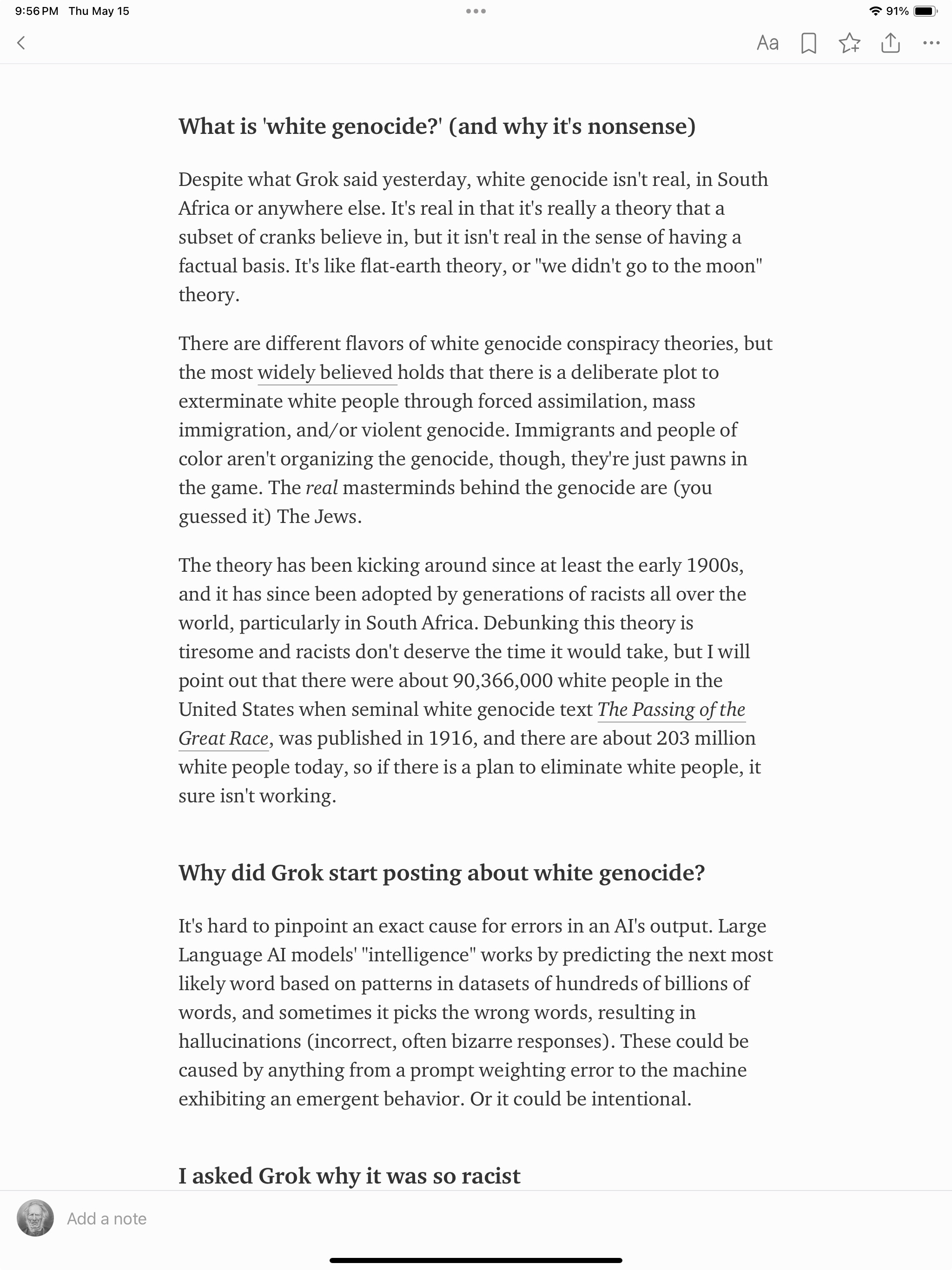
When AI first began colonizing language — which is still our best instrument for bridging the abyss between us, a container for thought and feeling that shapes the contents — I asked chatGPT to compose a poem about a solar eclipse in the style of Walt Whitman. It returned a ledger of cliches in rhymed couplets. Getting the form wrong — Whitman did not rhyme — seemed like an easy correction by a line of code. Getting poetry itself wrong was the interesting question, the question that gets at the heart of why we make poems (or paintings or novels or songs) — a question fundamentally about what it means to be human.
Platforms always had the technical means to scam us and abuse us. Tech founders and investors always included a cohort of scumbags who would trade our happiness and wellbeing for their profits. What changed was the consequences of giving in to those impulses.
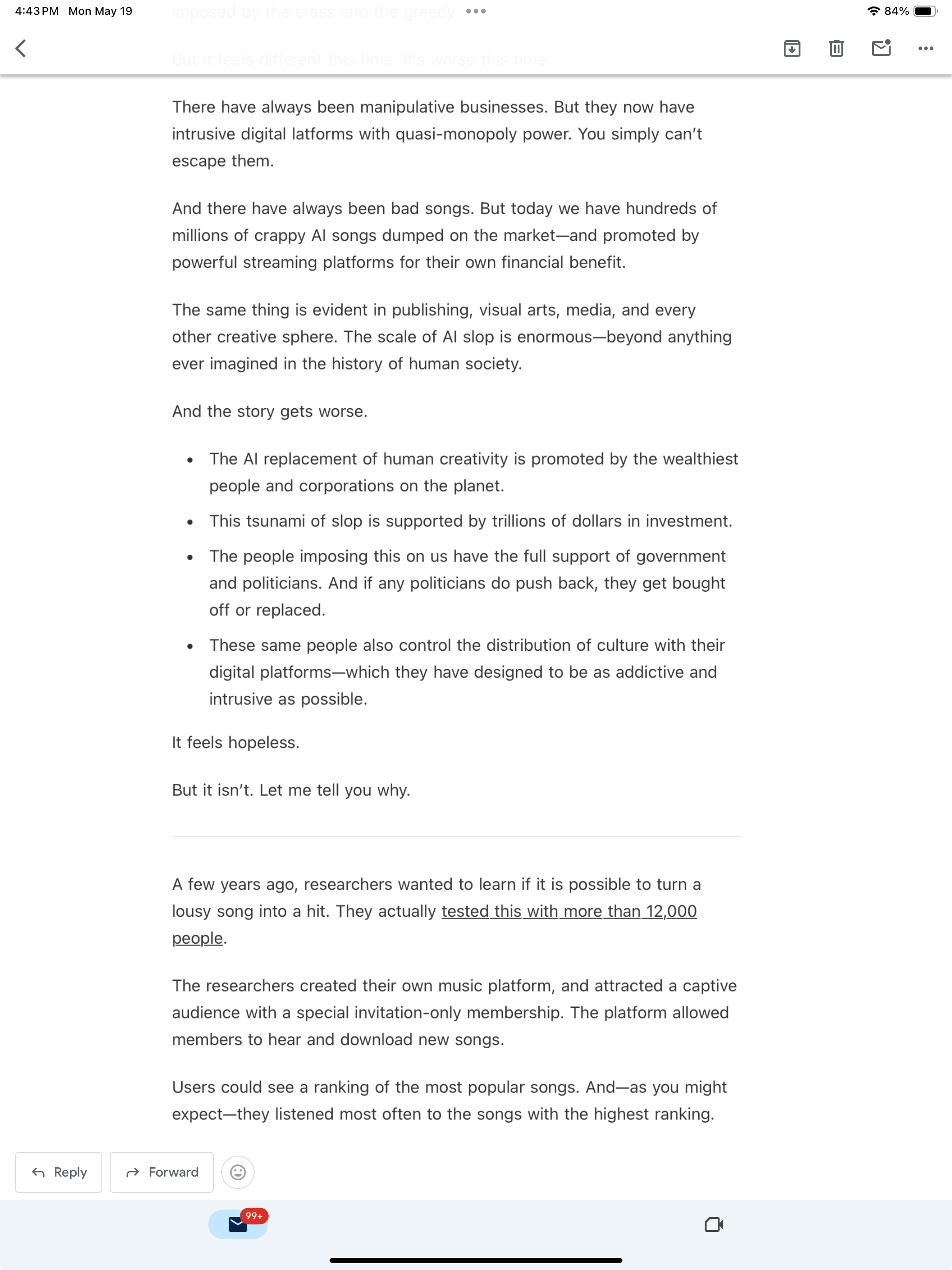
...The big picture: America is facing the biggest, fastest, most consequential technological shift in history — at the very moment people have lost faith in the big institutions. Making matters worse, most of us feel exhausted before contemplating super-human intelligence — which is often so unimaginable or scary that it's easier to ignore than engage. Many are jamming their heads in the sand instead of exploring this new frontier.
...Close reading emerged in England in the 1920s among "practical critics" like I.A. Richards and William Empson at Cambridge University, and shortly thereafter in the United States among "New Critics" like Cleanth Brooks, John Crowe Ransom, and Robert Penn Warren. But while Richards and Empson were progressives, most of the New Critics were conservatives, even reactionaries, profoundly influenced by T.S. Eliot's indictment of modernity and his reevaluation of the canon (demoting John Milton, for example, while elevating John Donne). Key founders of the New Criticism had belonged to the so-called Southern Agrarians, who published a manifesto, I'll Take My Stand, in 1930, in which they rejected industrial modernity and romanticized the Old South, espousing white supremacy. (In later years, Warren revised his position, publishing a book of interviews with civil rights activists.)
...there's only one major book-length study of the unmistakably transformative transition from typewriters to word processors, Matthew Kirschenbaum's excellent Track Changes, but everything that digital culture has been since the late 1980s rests on that fundamental shift. We gained and are now losing a new infrastructure for storing, indexing and accessing information with digitization and the World Wide Web. Within another few decades, there may not be many people who can remember how remarkable that infrastructure was for a short and brilliant time, between about 1995 and 2010.
The very first cities in Mesopotamia are essentially administrative centers for despotic systems of exploitation. But for most of recorded history, cities have been intimately connected with transportation logistics.

via Bruce '...Preparing for meetings isn't something that requires AI, nor is research, unless, of course, you don't really give a shit about the actual content of what you're reading or the message of what you're saying, just that you are "saying the right thing."
...I could care less whether a puff piece that would always have been a shallow lie composed by a writer who hadn't really read any of the books they were recommending is written by an AI or by an underemployed human being. What I care about a lot is that this text and a great deal of text like it is now likely to be used as training data for AIs in the future. AI-created misinformation is already feeding into itself and the problem can only get worse.
...As Google CEO Sundar Pichai put it in a 60 Minutes interview in 2023, "There is an aspect of this which we call—all of us in the field call it as a ‘black box.' You know, you don't fully understand. And you can't quite tell why it said this, or why it got wrong. We have some ideas, and our ability to understand this gets better over time. But that's where the state of the art is."
The progress of the underlying technology is inexorable, driven by forces too powerful to stop, but the way in which it happens—the order in which things are built, the applications we choose, and the details of how it is rolled out to society—are eminently possible to change, and it's possible to have great positive impact by doing so. We can't stop the bus, but we can steer it ...
...When coalitions are forming and campaigning, they tend to focus on their shared goals. But once they take power, it's their differences that matter.
As a whole these volumes work not by synecdoche or metaphor, beauty or drama, or even storytelling. What's notable is Karl Ove's ability, rare these days, to be fully present in and mindful of his own existence. Every detail is put down without apparent vanity or decoration, as if the writing and the living are happening simultaneously. There shouldn't be anything remarkable about any of it except for the fact that it immerses you totally. You live his life with him.
...The word grotty was invented by Alun Owen for his screenplay of A Hard Day's Night. It was originally short for grotesque, but the distaste with which George Harrison utters it in that film perfectly suits its later meaning: grimy, seedy, seamy, dirty. It fits the kitchen-sink comedy of Withnail and I, which has antecedents in the British radio and TV shows written by Ray Galton and Alan Simpson, such as Hancock's Half Hour. Indeed, Tony Hancock's misanthropic persona is a Withnail prototype: an angry young man whose rage is pathetic rather than dignified, hugging his delusions of superiority about himself. The writers would come up with wonderful stuff for their star to say, like "I thought my mother was a bad cook, but at least her gravy used to move about." That sinister moving gravy feels like it evolved into the nameless matter inhabiting Withnail and Marwood's sink
...You can't click without hitting the proclamations of the web being dead/useless/broken/unusable. Why the web is bad? What happened to the web?
How ungenerous our culture has been in portraying science as cold, unfeeling, and aloof from the human sphere. No — to live a life of science is to live so wonder-smitten by reality, by the majesty and mystery of nature, that the willful destruction of any fragment of it becomes unconscionable. It is impossible to study the building blocks of life without reverence for life itself, impossible to devote one's days to the enigma of a single element or elementary particle without venerating the inviolable cohesion of the universe. There is a kind of innocent exhilaration to this sense of wonder, and a quiet ethic. It may well be our greatest antidote to self-destruction.
Sam Altman has announced—in a video way too long for the creatures of shrinking memory spans that dwell online—that OpenAI has acquired io, the new venture of former Apple design legend Jony Ive, for $6.5 billion. Being pre-product and pre-revenue (and even if it was post-), that's a crazy number. Altman is confident, however, that it's the deal of the century, potentially adding $1 trillion in value to OpenAI, per the Wall Street Journal.
...(WSJ) The product will be capable of being fully aware of a user's surroundings and life, will be unobtrusive, able to rest in one's pocket or on one's desk, and would be a third core device a person would put on their desk after a MacBook Pro and an iPhone.
(quotes Soshana Zuboff)...In the 21st century, the engineering imperative of blindness by design yields catastrophic harms as all bits and bytes are welcomed into the global information bloodstream for immediate human-to-human transmission. The lesson: When social information is transmitted as a bulk commodity through blind systems optimized for volume and velocity, the result is epistemic chaos characterized by widespread uncontrollable information corruption
A now-obscure cousin of Lyme disease called recurring fever was a scourge of early civilization. Caused by the bacterium Borrelia recurrentis, it results in crippling headaches and repeated bouts of high fever; if left untreated, it damages organs and even leads to death. Like other diseases that tormented the ancient world, including leprosy and the plague, it seized the opportunity to jump from animals to humans when farming and domestication originated about 11,000 years ago—or so researchers thought.
...' Nancarrow, whose piano writing is so incredibly rhythmically precise that he didn't trust a real pianist to get it right — these works are all for automated player piano. They're all really interesting (and fun to listen to, once you get used to them!) but Study For Player Piano no.40 is the standout, since the two canonic voices are played at a tempo ration of e:π. No, I've no idea why either, but isn't it fun?
1. Loving the journey, not just the destination
2. Being a question-asker, not just an answer-getter
3. Trying, failing, and trying differently
4. Seeing the whole picture
Walking in others' shoes
...if you're "fully giv[ing] in to the vibes" and running AI-generated code you haven't reviewed, you're compounding the problem. When insecure defaults get baked in, they're difficult to detect—and even harder to unwind at scale. You have no idea what vulnerabilities may be creeping in.
...The mistake that everyone makes is a rush to crown the new monopolist at the start of what is essentially a wide-open field at the beginning of a new disruptive market. And they envision that monopoly largely as a replacement for what went before, rather than realizing that the paradigm has changed. When the personal computer challenged IBM's hardware-based monopoly, companies raced to become the dominant personal computer hardware company. Microsoft won because it realized that software, not hardware, was the new source of competitive advantage.
...The internet is full of content produced by real people, of course (this article included). But AI-generated media is getting so realistic, that it almost puts you at a disadvantage to presume the content you're scrolling past on your feeds is legitimate.
...Organic bees aren't owned by anyone, after all. They buzz around doing their thing, and it turns out the thing they do is a massive public good. Without bees, we'd lose roughly a third of our food supply, which is... a lot more than we can afford to lose. So we're all motivated to keep them pollinating, right?
...On matters to do with women and gay people, the Vatican hasn't a clue what to do except from time to time recognise that women are part of God's will and we, poor gay people, are special and should be loved when we are not being told —one of Benedict's epithets — that we are 'intrinsically disordered'
...The researchers found that the bee sounds led the snapdragons to increase their sugar and nectar volume, and even alter their gene expression that governs sugar transport and nectar production...
...the titanic information dump known as Ulysses. That book's raw materials, the reconstructed and suppositious events of a Dublin day in 1904, were already out of date when Joyce started putting them together, but their importance for him was somehow consecrated rather than nullified by the events that intervened during the writing — things like a world war and the Easter Rising
...Evidently OpenAi and Sir Jony Ive are getting ready to release an AI companion device that will have no screen and will be designed to be with you always, listening always. I imagine it will be astonishingly expensive. The idea is that you will talk to it, and be weaned off screens. Zuckerberg is talking about all of us needing AI friends, which is happening already with certain species of chatbot. Are "friends" electric? You won't need to hold them in your hand. You'll just carry a little coffin with a ghost in it that talks to you.

...Part of the reason I find the real AI future that is unquestionably at our doorsteps so concerning then is not about its economic impact, its taking of jobs or that it might try to rule the world, but that we are unleashing it at a time where our view of what we are as human beings is incoherent and contradictory. In the modern West for the most part we are one of the few human civilisations that does not even purport to have answers to what we are or what we are doing here, we have banished our collective myths and with it we suffer from a loss of identity. We live in a bizarre, incongruous age where on one hand the self does not and could not possibly exist, and on the other it is the most important, authentic, free and significant fact about you. Somehow we believe both, the former as a metaphysic, the latter as a popular impulse.
...What Sontag couldn't have foreseen is how the link between subject and photograph, and the photograph's existence as an ‘object' in its own right, have both been diluted, distorted and on occasion rendered obsolete by developments in technology and the applications of image-making.
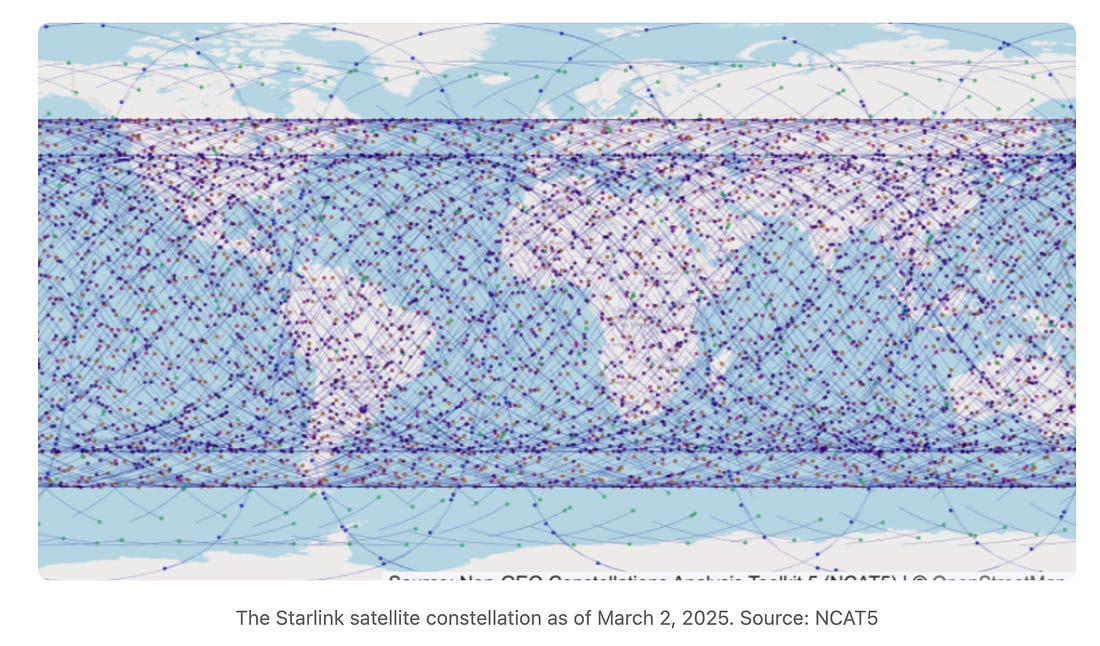
...Yeah, yeah. Stories. I've come to realize in just the last few days that we need new stories for rivers and some of those new stories are very old stories. And there are places in the world where they have never stopped being told. But I guess a writer's work— I'm not a policymaker, I'm not a politician. I don't have the direct ear of government. But a writer's job is to tell stories and in that way to reimagine relations with, in this case, rivers. And I wanted to ask myself, and I did so by speaking with rivers and with river people, what happens when you reimagine a river as alive? As having a life, having a death, and even having rights? And it's a hard work. It's hard work, that reimagining. Right? It's unlearning, I think.

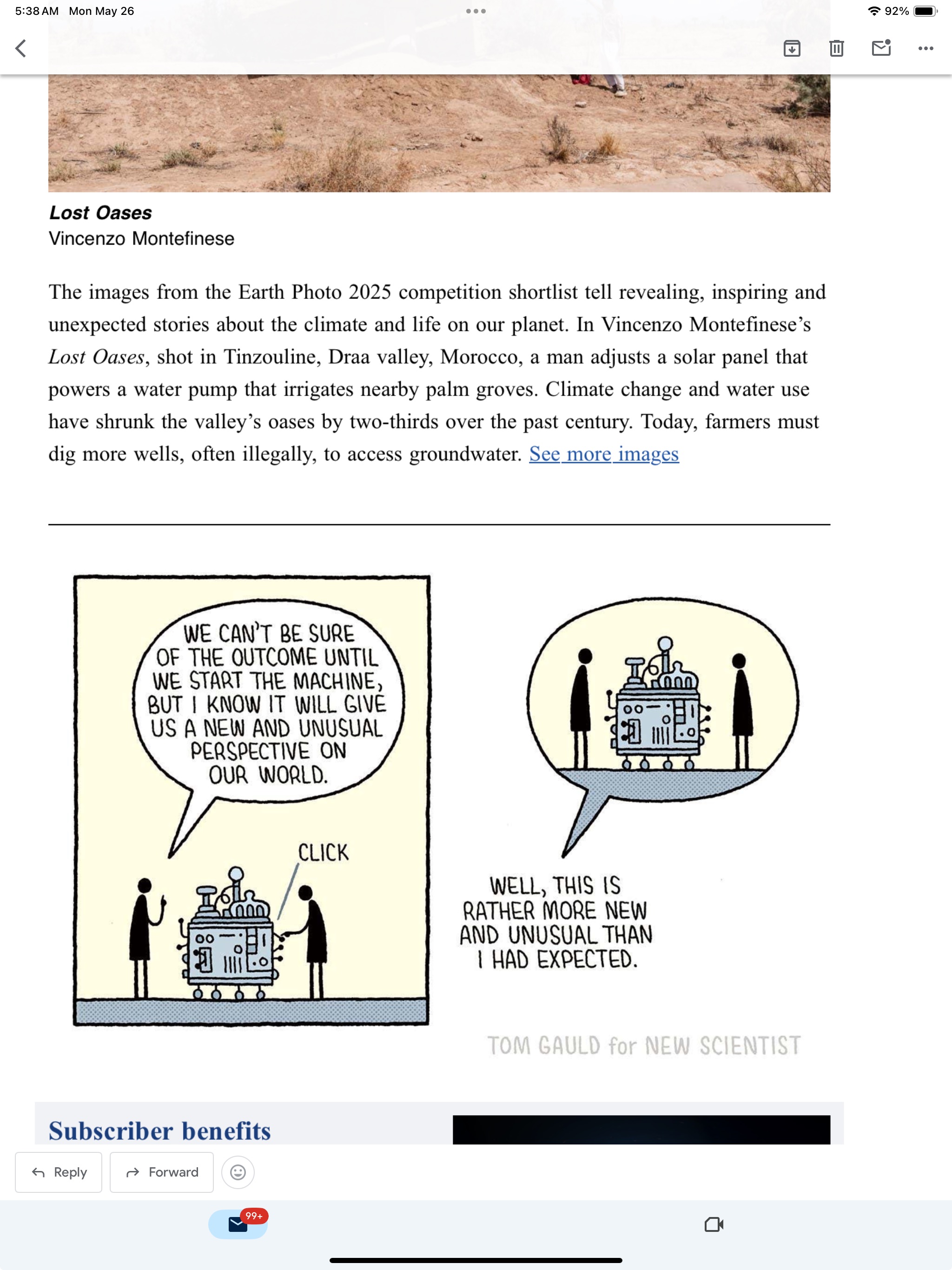

...With head-spinning speed, his minions then stripped the U.S.A.I.D. logo from its federal building, shut down its website, purged its 10,000 employees, and started slashing its $40 billion budget for delivering aid to more than 100 nations globally. The White House also quickly transferred what was left of that agency back to the State Department, where Secretary of State Marco Rubio spent six weeks slashing 83% of its global humanitarian programs, reducing 6,200 of them to about 1,000
...In the nineteenth century, pain and fever were treated with sodium salicylate, but the drug could cause nausea and a ringing in the ears, so a chemist for Friedrich Bayer & Co. thought it would be worth trying variants on salicylic acid. He concocted the acetylsalicylic acid that we call aspirin. Other painkillers followed more zigzagging paths. In 1886, two German physicians decided to try naphthalene as a treatment for a patient with worms and a fever; the worms were unfazed, but the fever dropped. The physicians discovered that the pharmacist had accidentally given them the wrong substance, the later identification of which led to the development of acetaminophen, or Tylenol. The common epilepsy drug carbamazepine was developed to treat the shooting nerve pain of trigeminal neuralgia, which is described as feeling like a hatchet to the head and is often called the suicide pain.
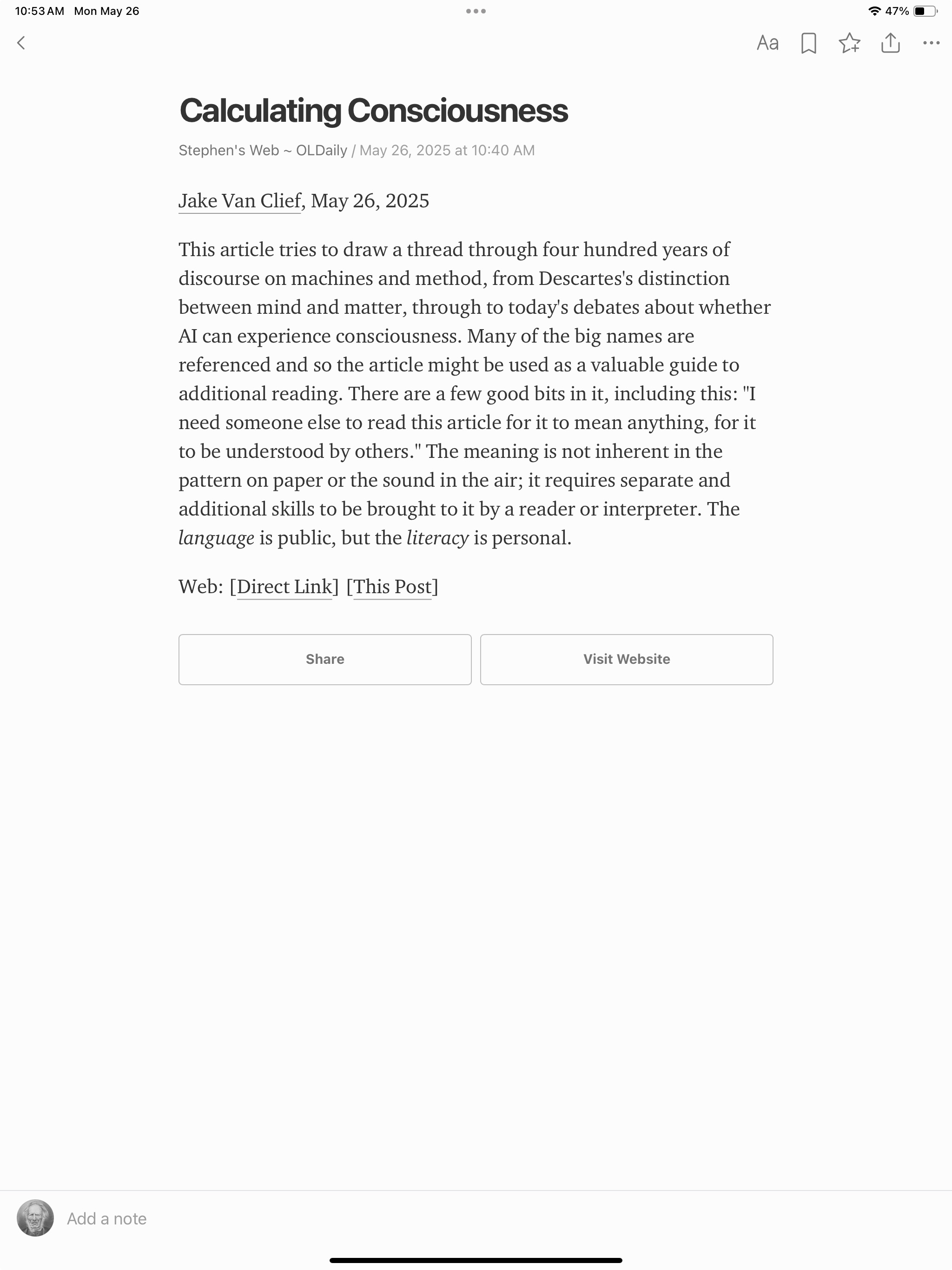
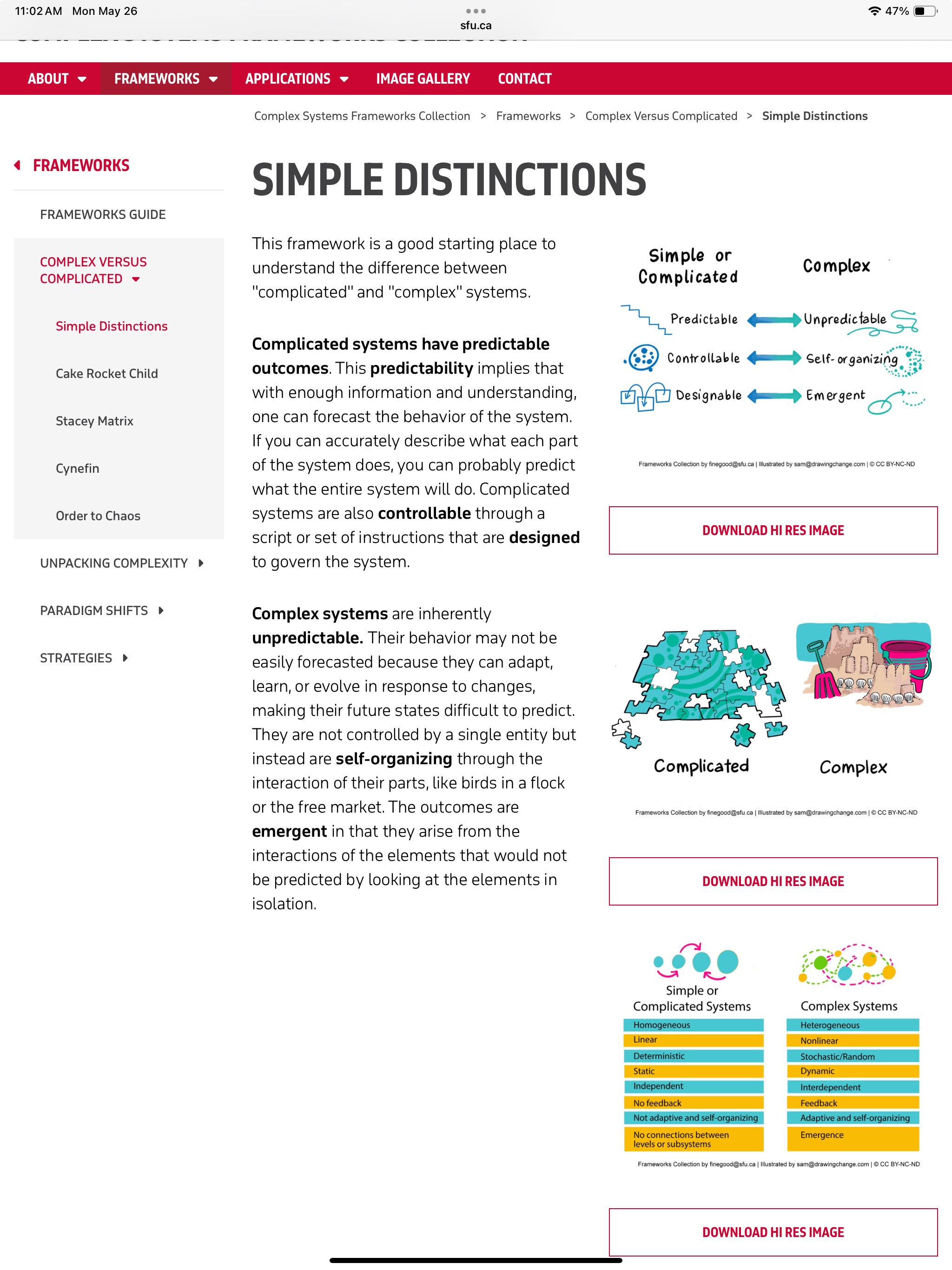
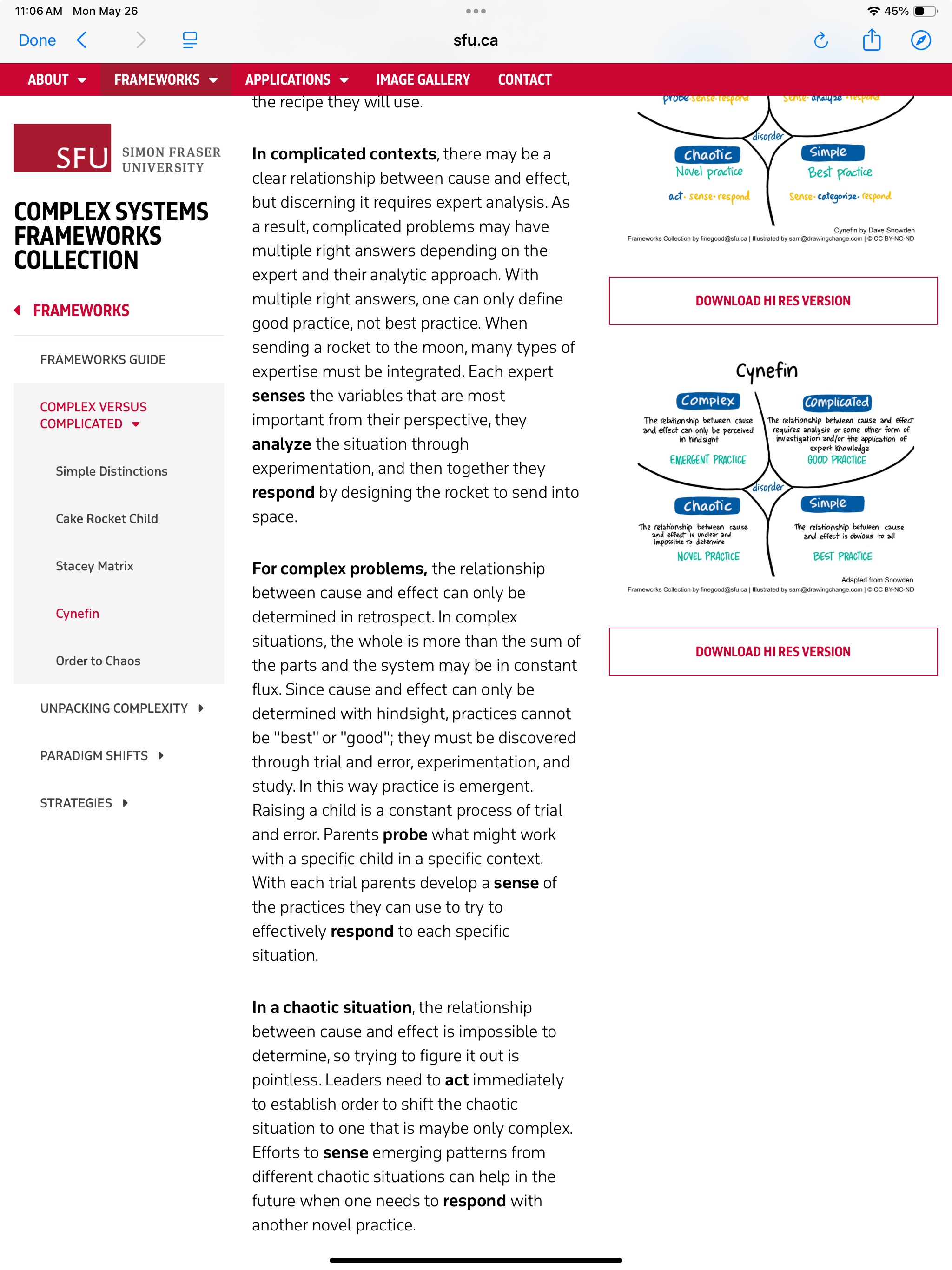
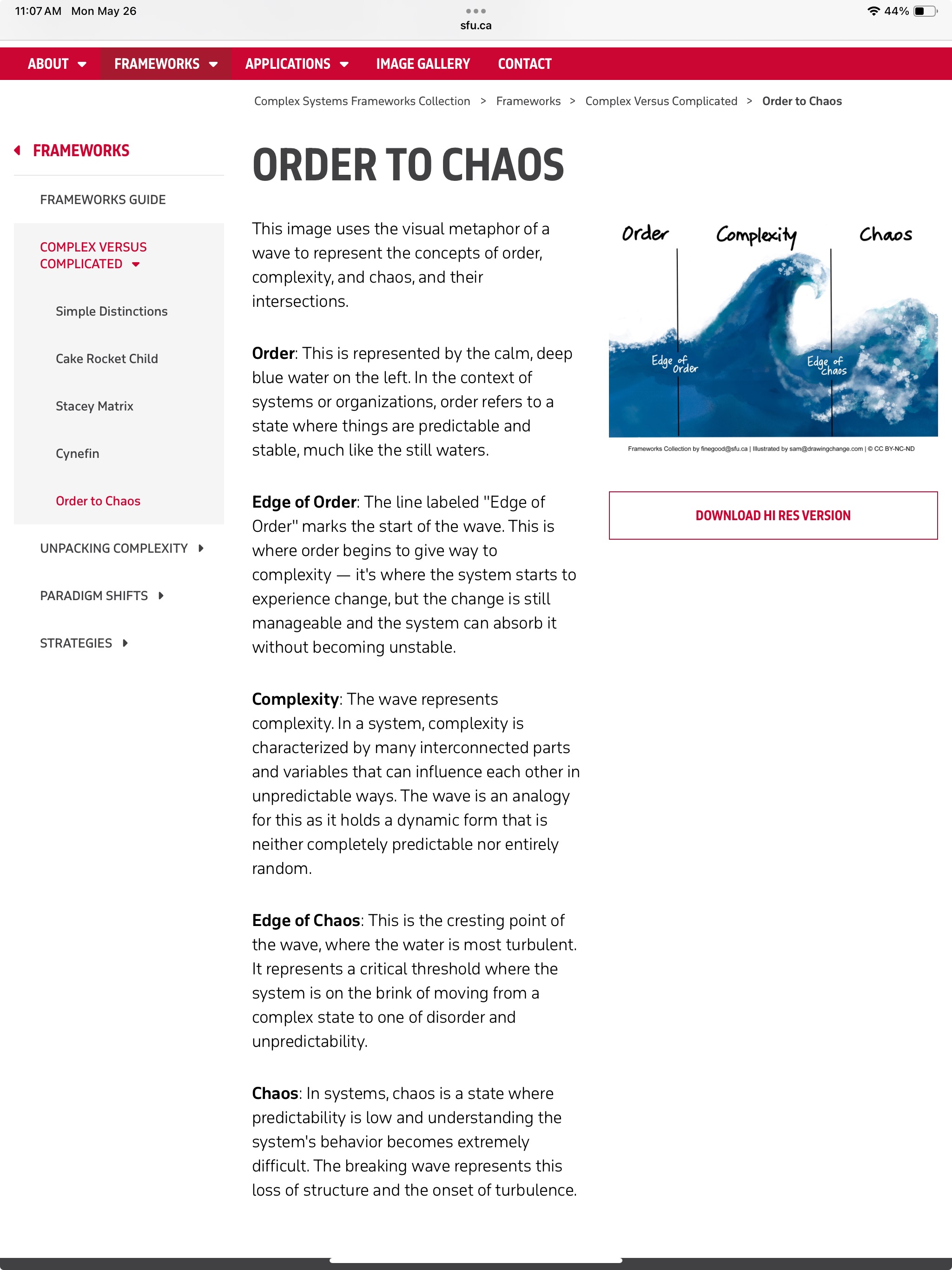
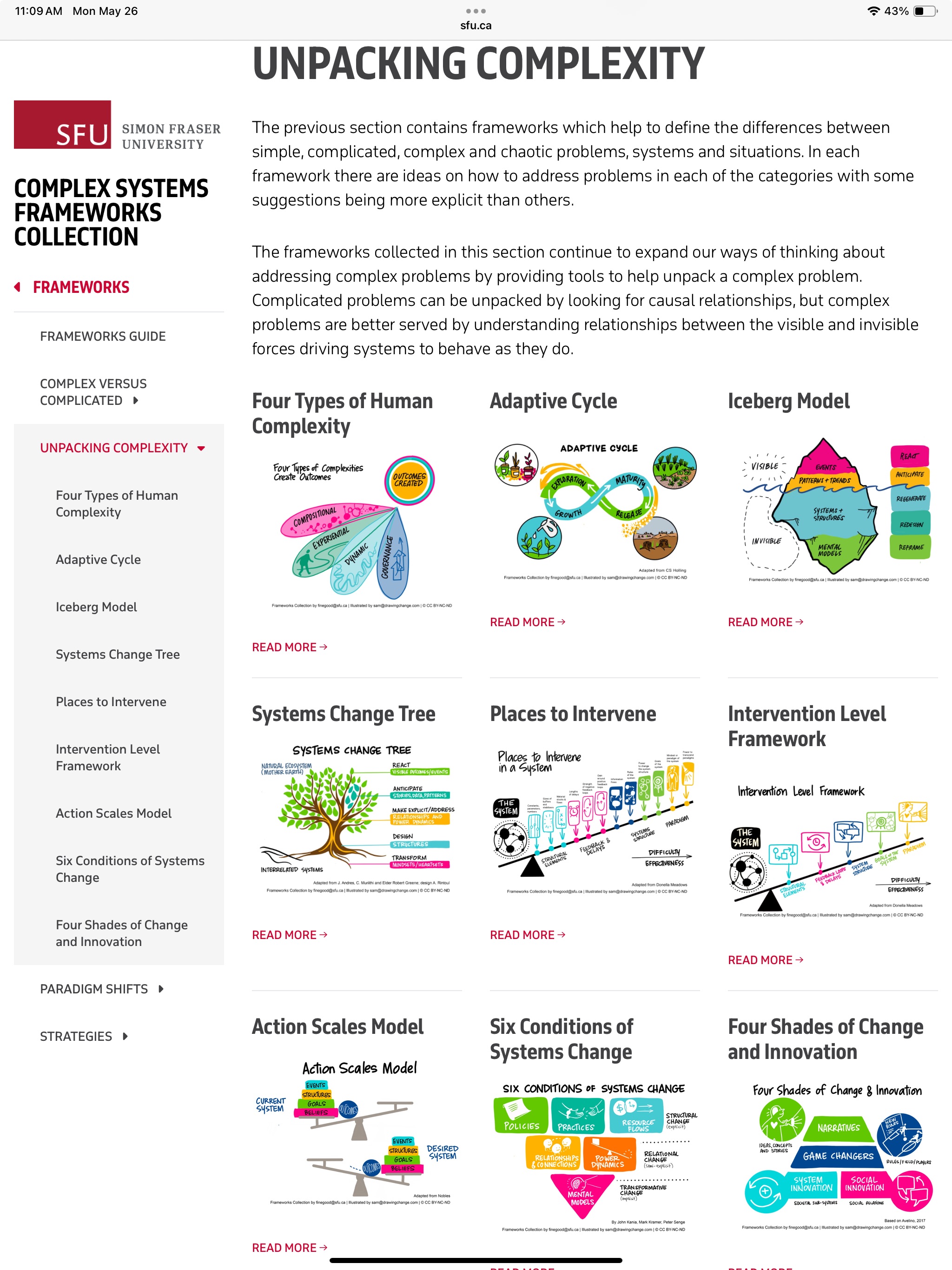
The thesis of the series is the same as the thesis of enshittification: that the internet turned into a pile of shit because named people, in living memory, made policies that were broadly "enshittogenic" because they insulated businesses that tormented their end users and business customers from any consequences for their cheating:
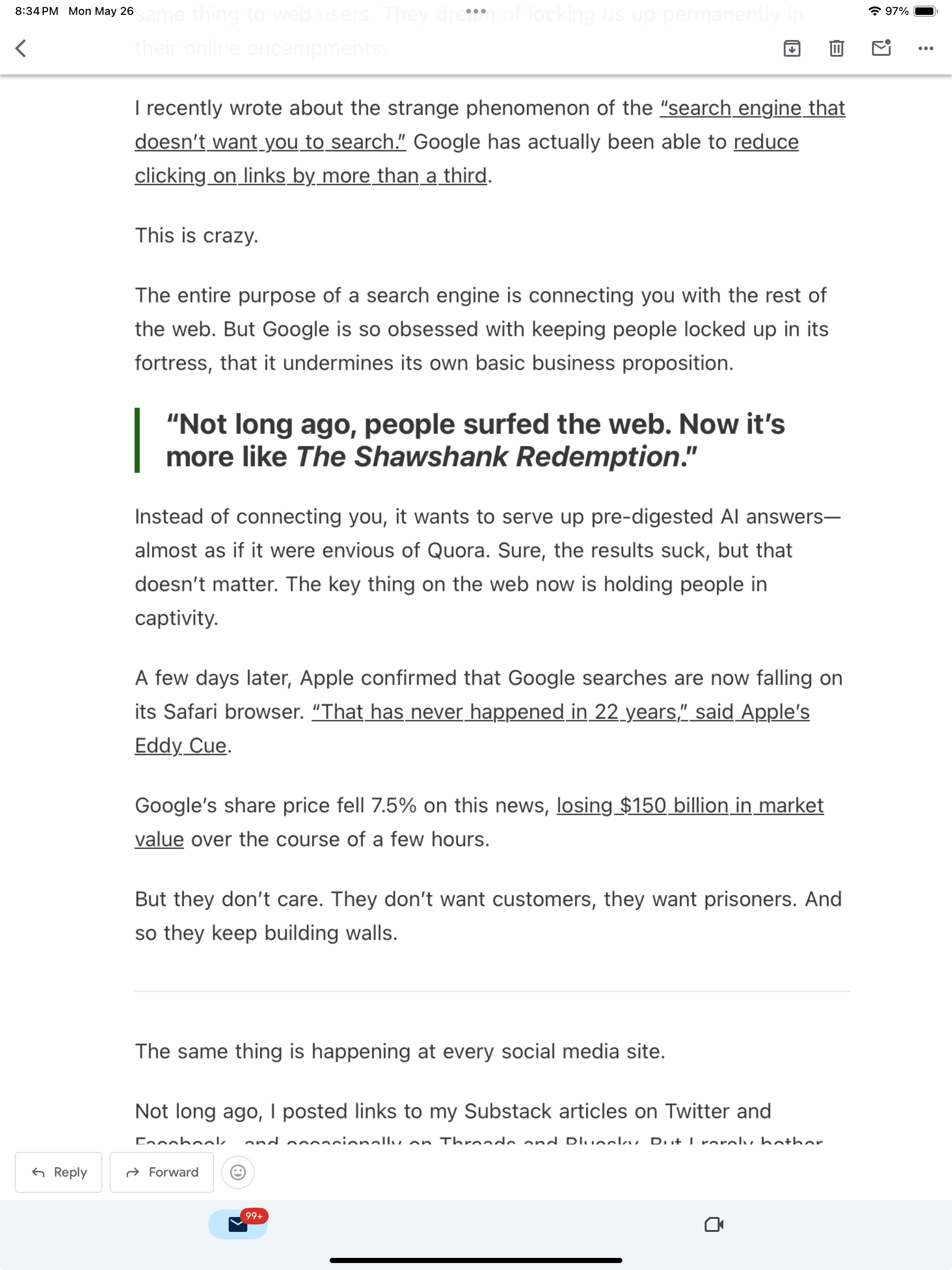
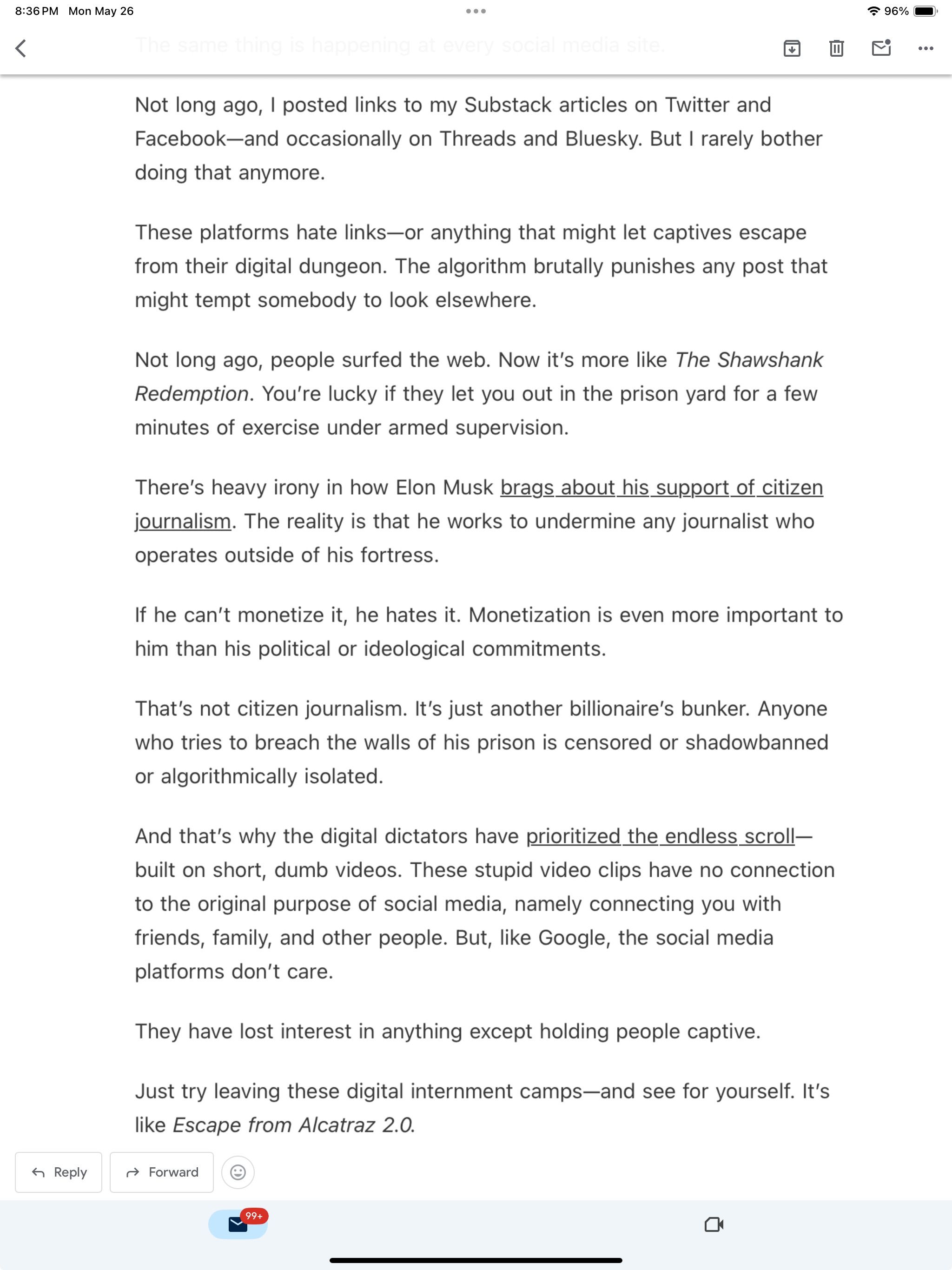
(Surreal, Stubborn, Stupid) + (Dangerous, Destructive, Dumb) = 3SD, and its emergence through the psychosis of media and head shred scroll holes of Tik Tok and Temu.com
Why do most people now prefer simulation to reality?
...The digital is not separate or minor; we do not 'log on' to 'cyberspace' to 'surf the web', then 'log back out' to our separate and entire meatworld banalities. The digital, as one of the key pipes, is a vital global hyperobject of existential infrastructure. We do not need it like we need potable water and sewerage in a big city, but we are as immersed in it as fish in a tank of our own making.
...In many ways, China's affliction of involution is no different from America's cutthroat meritocracy. But China's crisis is unique in the severity of its myopia and its methods of entrapment. The young high schooler, disillusioned with the monotony of school, cannot easily access subversive subcultures or explore alternative ways of living, because, increasingly, that information is deemed "vulgar" or "immoral" and banned by the government, scrubbed from the digital sphere in the name of "promoting positive energy." The delivery driver, seeking better working conditions, can't protest his grievances or organize his fellow workers in an independent union, because he rightly fears that he will be detained. The disillusioned office worker, instead of taking action, will more likely sink deeper into his desk chair. Involution is a new word that helps keep an old system, and those who control it, in place.
Narrow the aperture of your attention enough to take in any one thing fully, and it becomes a portal to everything. Anneal that attention enough so that you see whatever and whoever is before you free from expectation, unfiltered through your fantasies or needs, and it becomes love. Come to see anything or anyone this clearly — a falcon, or a mountain, or a patch of moss — and you will find yourself loving the world more deeply.
...the most important, best-served constituency in the Trump coalition is scammers. This has been his promise since his first campaign, when he boasted on national television that he cheated on his taxes because "that makes me smart"
...Ocean darkening occurs when changes in the optical properties of the ocean reduce the depth of its photic zones, home to 90% of all marine life and places where sunlight and moonlight drive ecological interactions.
Odysseus Wikipedia
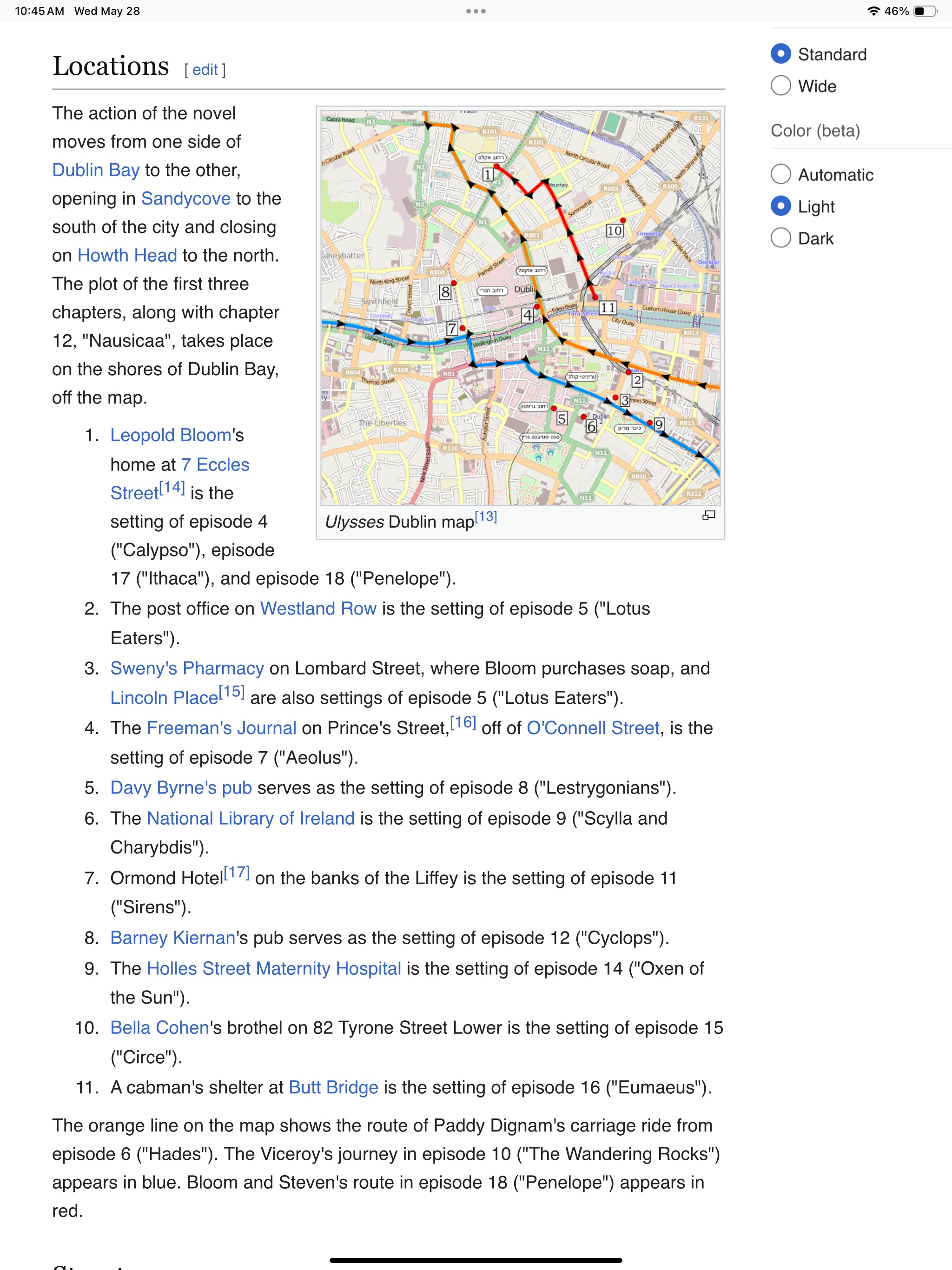
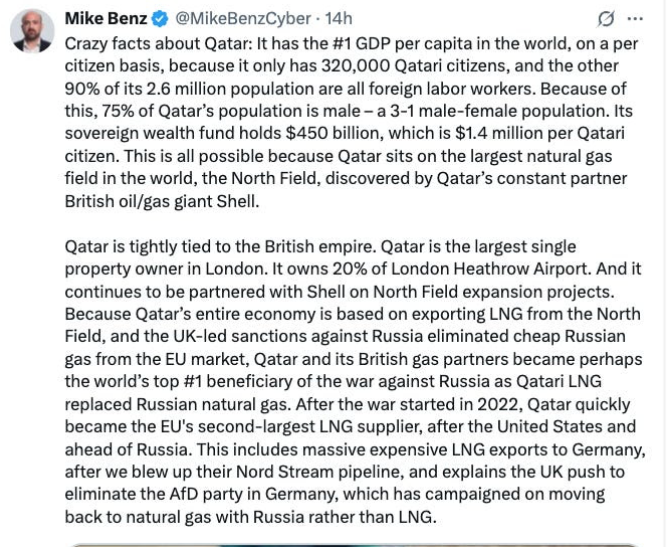
...The Bank of England had a peculiar semi-private status with enormous autonomy. And everyone knew it was too big to fail—it was, after all, the bank for the entire British Empire, and the empire would stand behind it. So the Bank of England could save the situation even if the government felt politically that it could not. It seems Lord Liverpool said to Buller: if it becomes necessary, I want you to print up banknotes in excess of the legal limit, and to lend out your gold reserves even though the bank's charter requires you to keep them in your vaults.
Paul Krugman, "Is There a Dignified Legal Way, Preferably in Latin, to say 'Holy Shit'?""
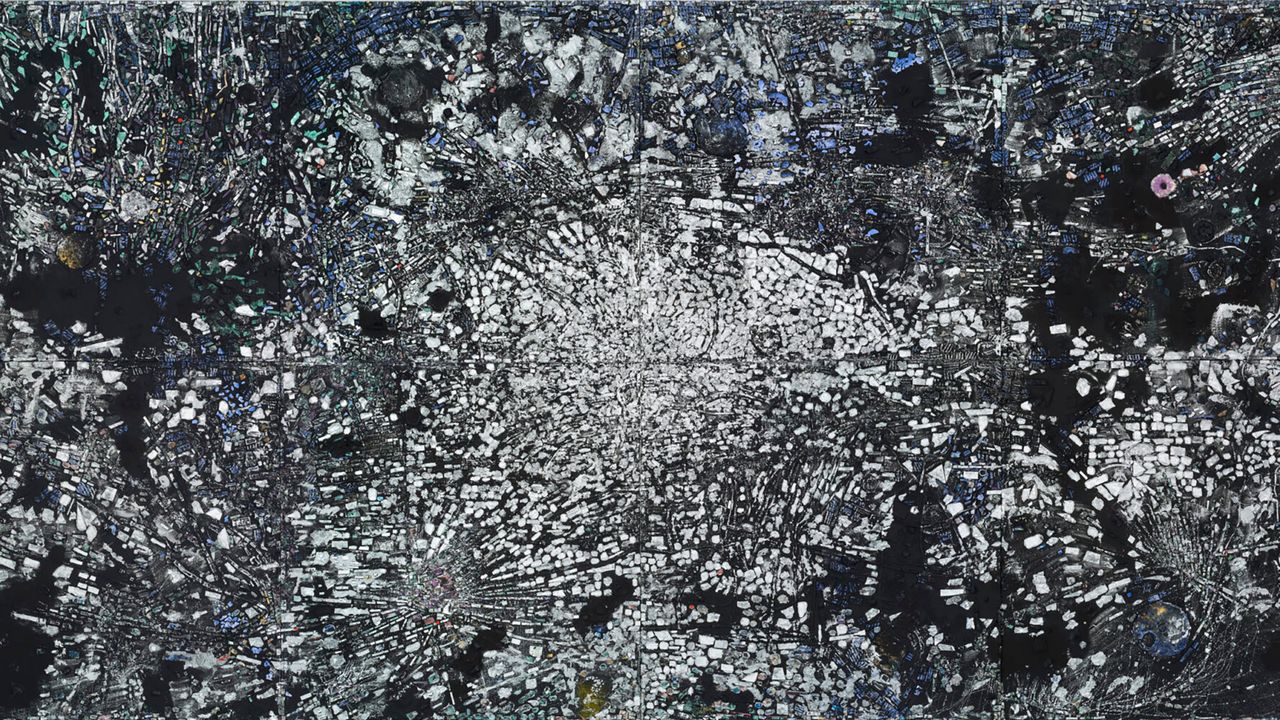
Lucas-Whitten at New Yorker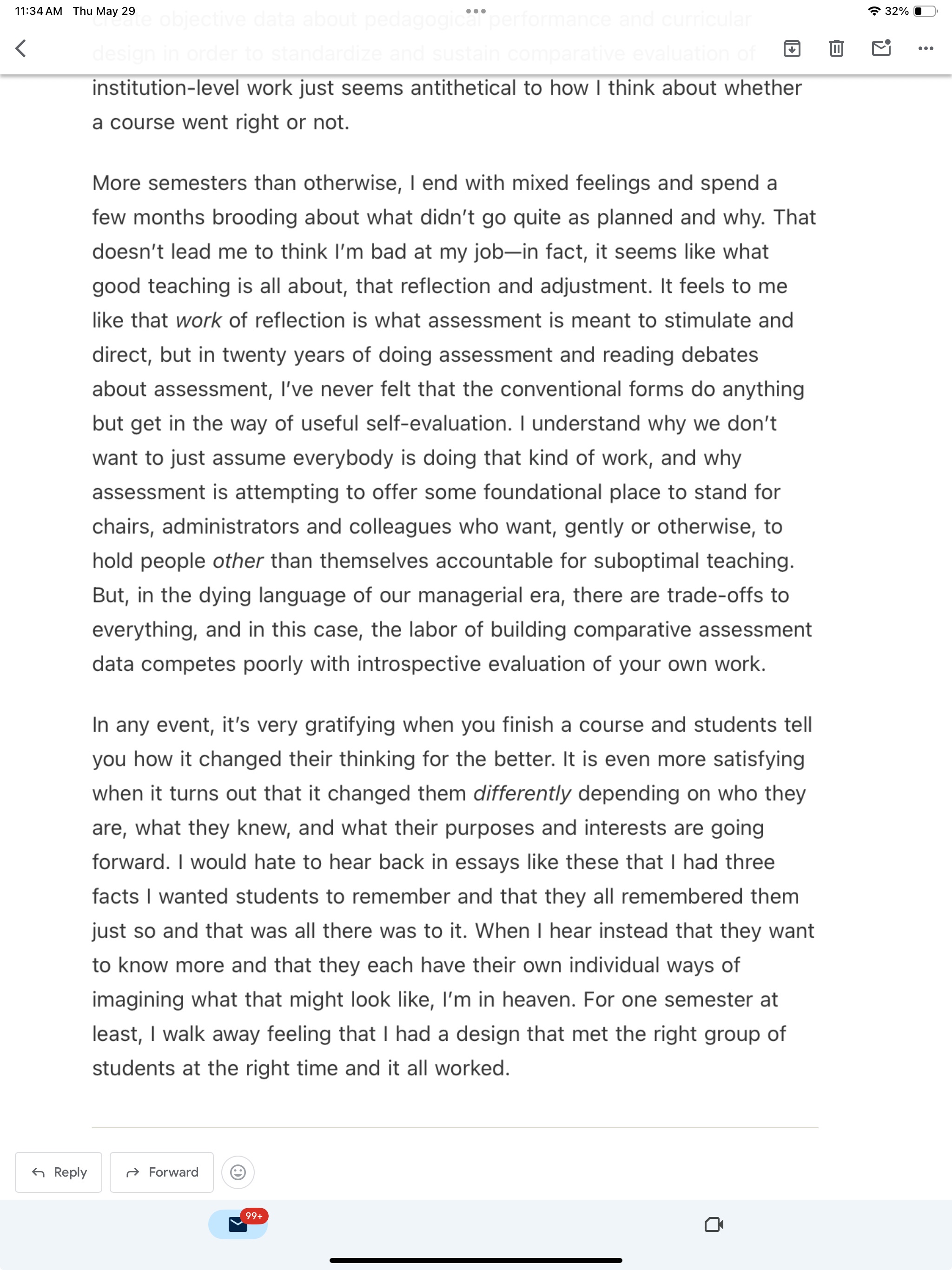
..."We have old tools, and new tools. Join them together to help students fall in love with the world."
.
...Part 1 of The Teacher in the Machine focuses largely on three scholars and their ideas for improving US education. Stanford University philosophy professor Patrick Suppes dreamed of an "individual Aristotle," or tutor for every child, who would help each student learn at their own pace. University of Illinois electrical engineering professor Don Bitzer created a sophisticated computer-based educational platform in the 1960s known as PLATO, which "could support up to one thousand students around the world doing coursework, playing early versions of video games, and chatting with their friends on message boards simultaneously." MIT applied math and education professor Seymour Papert led the "One Laptop per Child" initiative, which delivered laptops to millions of children around the world. His ideas influenced the "maker movement" of the 2010s and popular programming languages such as Scratch.
...The ancestry of present-day humans in East and Southeast Asia can be traced to ancient DNA from humans of the Late Pleistocene through the Holocene dating as early as 19,000 years ago (1). Prehistoric population splits and mixtures reveal the presence of distinct northern and southern East Asian lineages. In northern East Asia, a shared an cestry is found across populations spanning the Tibetan Plateau (2-4) to the Yellow River region (5-7) and as far up as the Amur River region (1). In southern East Asia, populations from the Fujian region of coastal China were shown to be closely related to present-day Austronesian speakers (5, 8) and to have contributed ancestry partially to humans further inland in Guangxi, as well as Southeast Asia (8–10). During the Late Neolithic to Bronze Age periods ∼4000 to 3000 years ago, more humans in southern China (5) and Southeast Asia (9, 10) transitioned to agricultural subsistence strategies and experienced higher gene flow from populations carrying northern East Asian ancestry.
...Between the revolutions of 1789 and 1848, volcanoes figured regularly as interruptions of narrative continuity in popular literature and spectacle, their eruptions often synchronized with the revolutions occurring amongst the dramatis personae downstage. 15 Geological and human history were intertwined by the metaphorical richness of the volcano, which was particularly linked to the forces of politics. By the latter part of the century, such isomorphism was precisely what the ascendant anti-positivism sought to reject, insisting on the fundamental incom- mensurability of the natural and human sciences. The causes of a revolution in politics could never be evaluated as though they were the forces that led a volcano to stir
Adzuki is a central legume in East Asian culinary culture, yet its domestication origin remains debated. Using ~700 accessions across Asia, we show that the initial domestication happened three to five thousand years ago in central Japan during the ' period, followed by a range expansion into China and secondary hybridization with Chinese wild populations.
...Since Hamas's bloodthirsty October 7, 2023, attack on Israel, elements of the Israeli government and its supporters have attempted to blame Qatar for supposedly supporting and bankrolling Hamas. The allegations are breathtakingly false and serve as a smokescreen for Hamas's actual patron (in a manner of speaking), Netanyahu himself. They were aimed, however, precisely at turning Qatar into a distrusted regional pariah, a ploy that has so far failed spectacularly
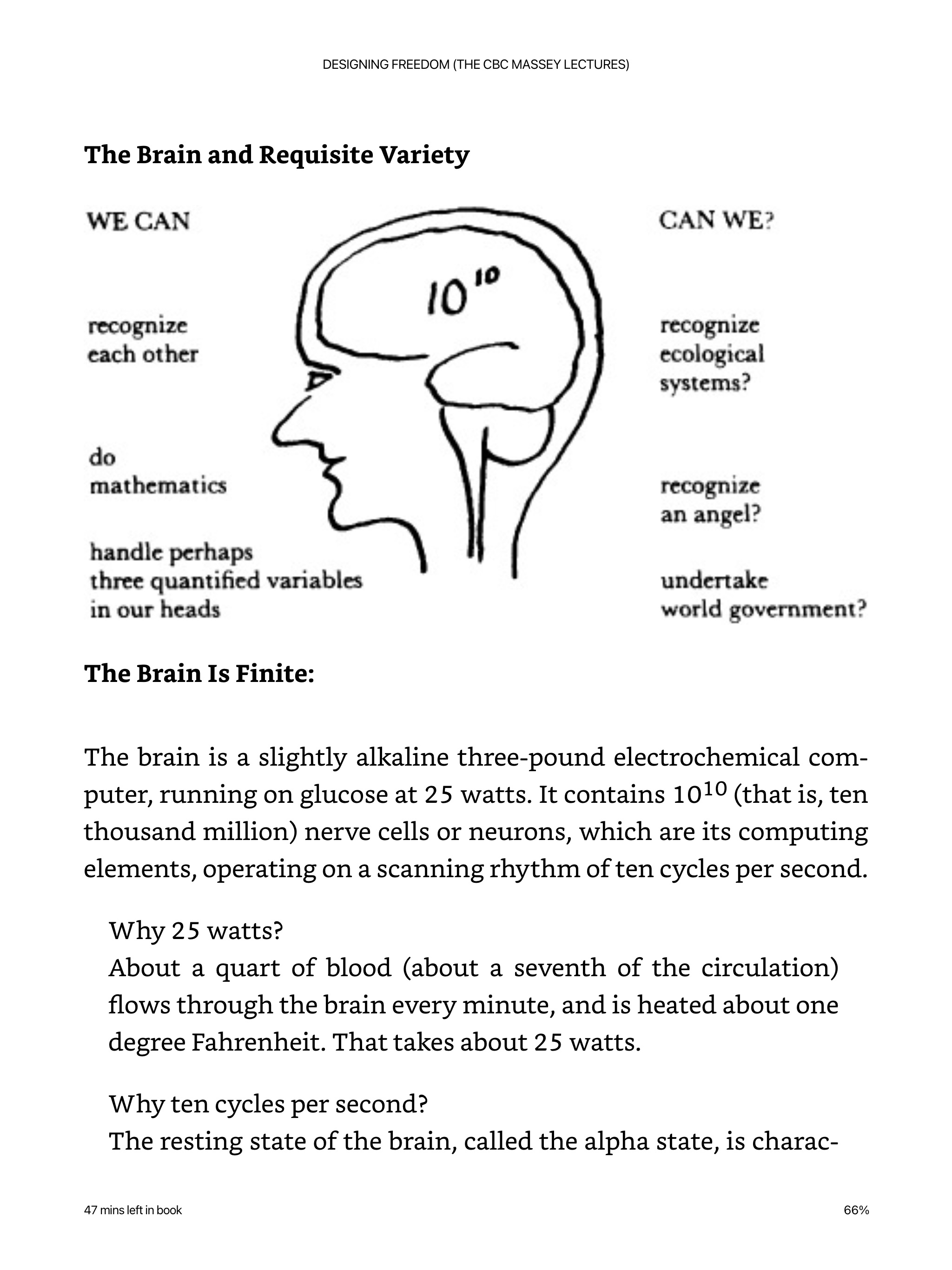
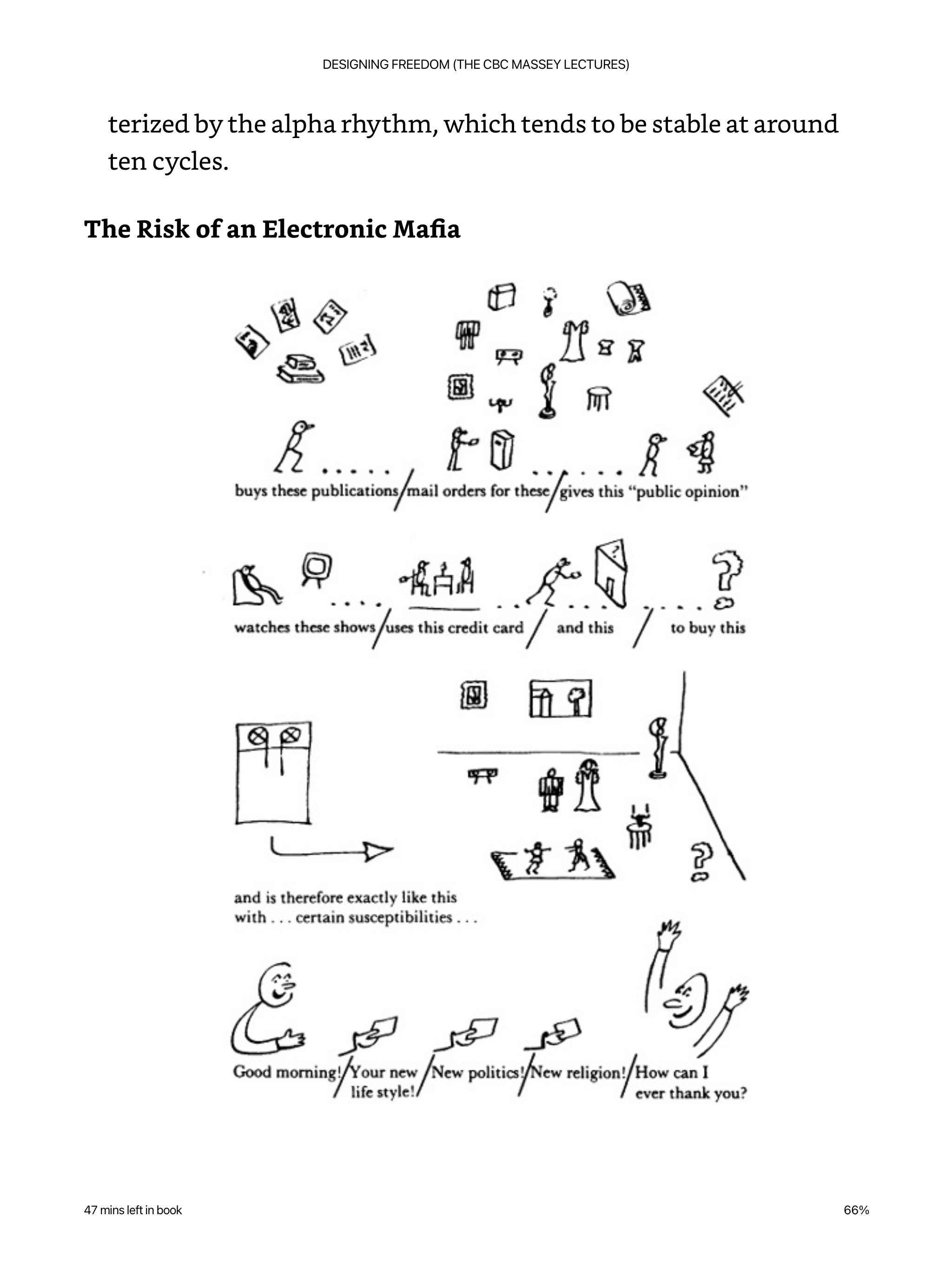
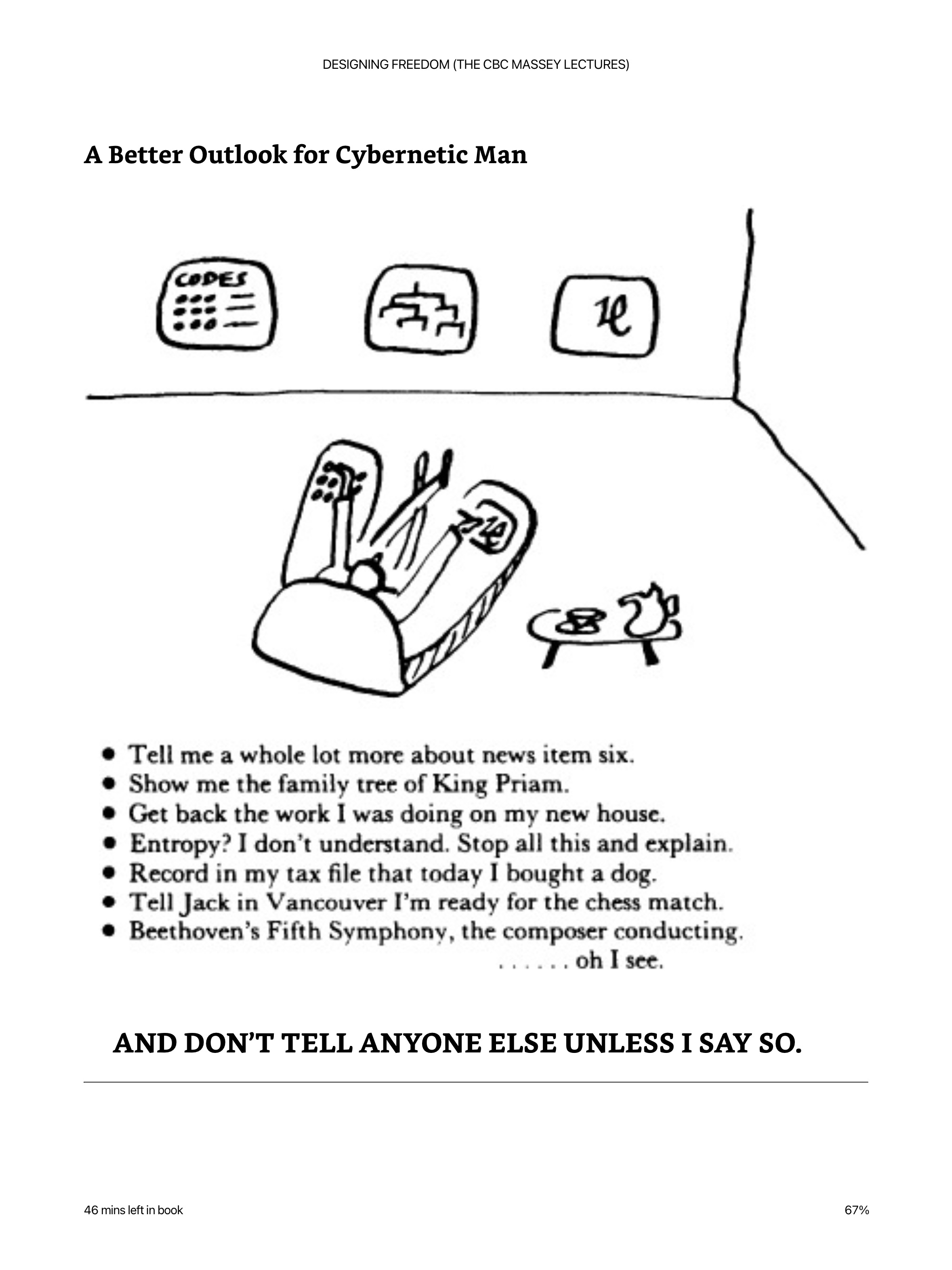
... Starlink, Musk's satellite internet company, had spent months trying to secure regulatory approval to sell internet access in the impoverished West African country. As head of Gambia's communications ministry, Lamin Jabbi oversees the government's review of Starlink's license application. Jabbi had been slow to sign off and the company had grown impatient. Now the top U.S. government official in Gambia was in Jabbi's office to intervene. Musk's Department of Government Efficiency loomed over the conversation. The administration had already begun freezing foreign aid projects, and early in the meeting, Cromer, a Biden appointee, said something that rattled Gambian officials in the room. She listed the ways that the U.S. was supporting the country, according to two people present and contemporaneous notes, noting that key initiatives — like one that funds a $25 million project to improve the electrical system — were currently under review. Jabbi's top deputy, Hassan Jallow, told ProPublica he saw Cromer's message as a veiled threat: If Starlink doesn't get its license, the U.S. could cut off the desperately needed funds. "The implication was that they were connected," Jallow said. The saga in Gambia is the starkest known example of the Trump administration wielding the U.S. government's foreign policy apparatus to advance the business interests of Musk, a top Trump adviser and the world's richest man. Since Trump's inauguration, the State Department has intervened on behalf of Starlink in Gambia and at least four other developing nations, previously unreported records and interviews show. As the Trump administration has gutted foreign aid, U.S. diplomats have pressed governments to fast-track licenses for Starlink and arranged conversations between company employees and foreign leaders. In cables, U.S. officials have said that for their foreign counterparts, helping Starlink is a chance to prove their commitment to good relations with the U.S. In one country last month, the U.S. embassy bragged that Starlink's license was approved despite concerns it wasn't abiding by rules that its competitors had to follow. The Washington Post previously reported that Secretary of State Marco Rubio has instructed U.S. diplomats to help Starlink so it can beat its Chinese and Russian competitors. Multiple countries, including India, have sped up license approvals for Starlink to try to build goodwill in tariff negotiations with the Trump administration, the Post reported. ProPublica's reporting provides a detailed picture of what that push has looked like in practice.
AI is a tool, and like any other, it should follow the golden rule: All tools must enhance, never erode, your most important one—your mind. Be curious about AI, but also examine how it shapes your habits and your thinking patterns. Stick to that rule and you'll have nothing to fear.
quotes Cory Doctorow:
This is basically exactly what I figured college would be like. A cross between summer camp and a Stanford obedience experiment. If all I wanted to do was cram a bunch of knowledge into my head, I could have stayed home and mooced it. I came here because I wanted to level up and fight something tough and even dangerous. I want to spend four years getting into the right kind of trouble. Going to classes, too, but seriously, classes? Whatever. Everyone knows the good conversations happen in the hallway between the formal presentations. Classes are just an excuse to have hallways....Anthropic, unlike other big model (LLM) developers, have approached the personality of the model as a design problem. It is, after all, talking with you via the usual chat box, which is an interface. Amanda Askell, an actual philosopher, works on Claude's design. "The goal of character training is to make Claude begin to have more nuanced, richer traits like curiosity, open-mindedness, and thoughtfulness," Anthropic wrote a year ago.
...Kennedy and his allies often argue that they're restoring trust in public health. It's more accurate to say that he's reversed the polarity of skepticism. Vaccine skeptics may believe in his leadership; Americans who once put their faith in institutions now have reason to doubt them. At a time when the country faces no shortage of health threats, the value of evidence and expertise is itself under attack. The anti-establishment has become the establishment, and its decisions will affect us all
The future of education depends on what we expect students to remember and do, not just what they can prompt Chatbots to generate. Thus forget banning AI. Instead teach students what it can't do for them. AI is simply the latest abstraction layer improving our information technology, a further step forward in the progression that started when we replaced clay with papyrus. Such abstractions are tremendously valuable, and productive. And so they become indispensable—until they break, and are no longer so.
